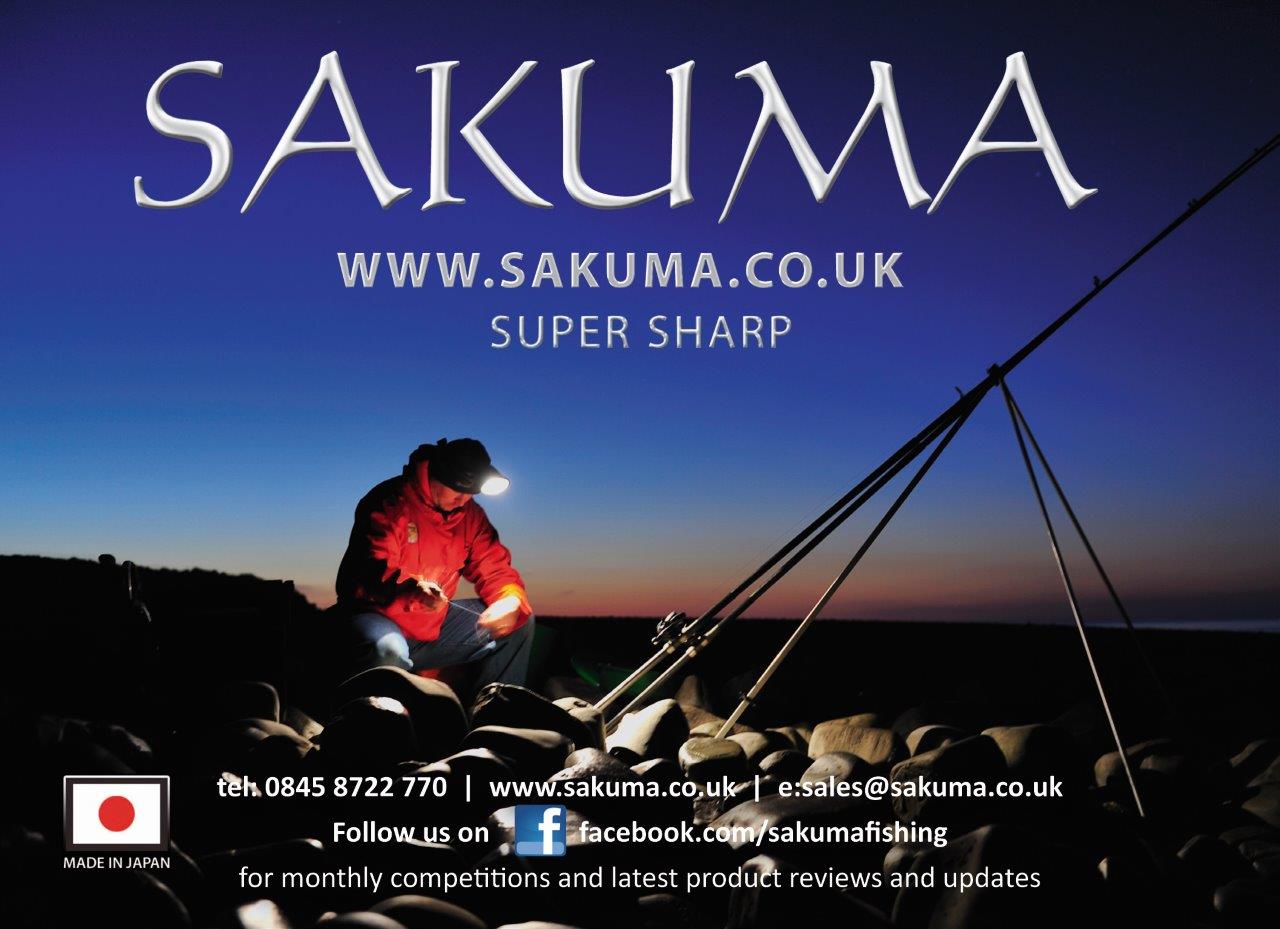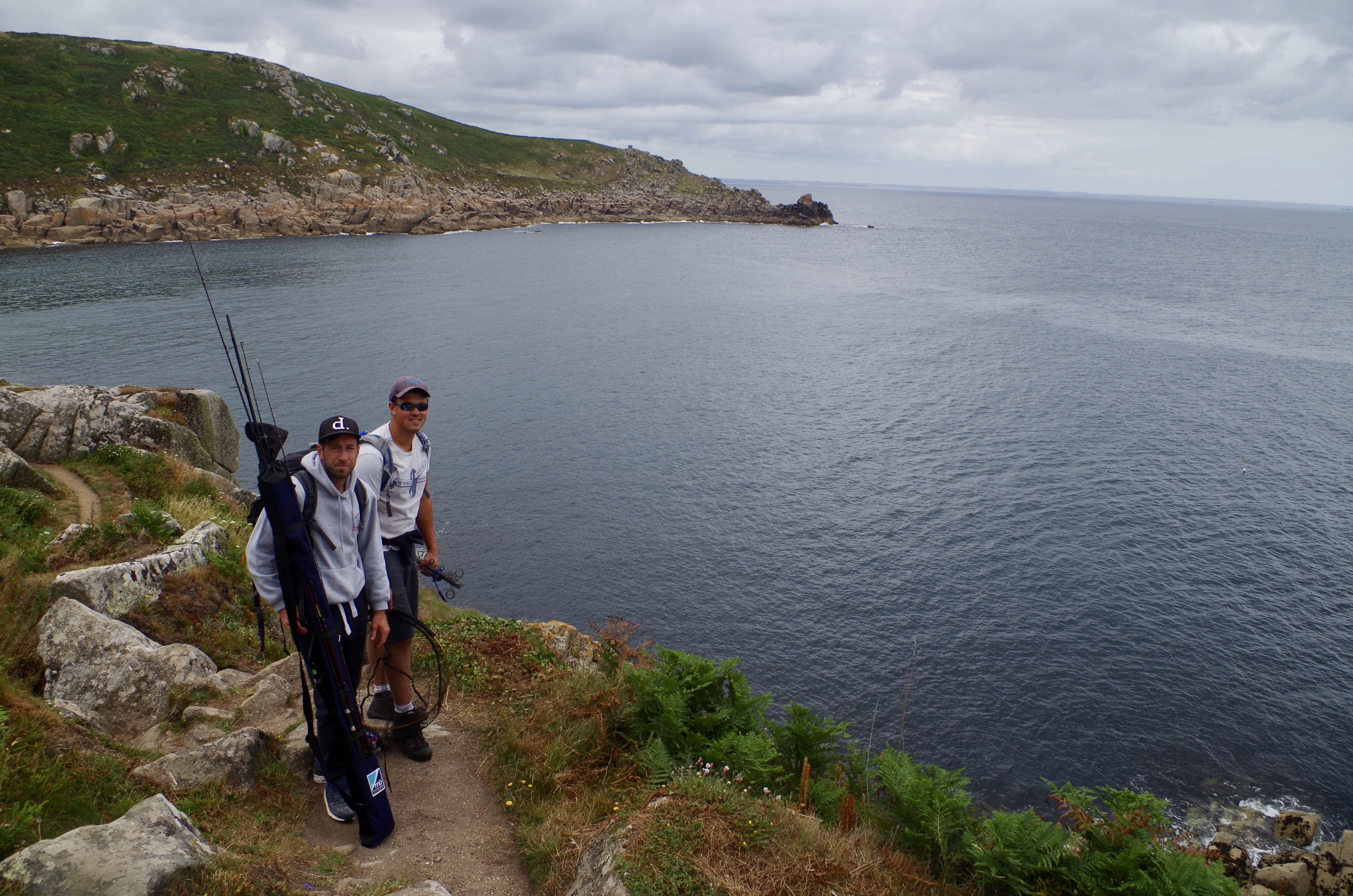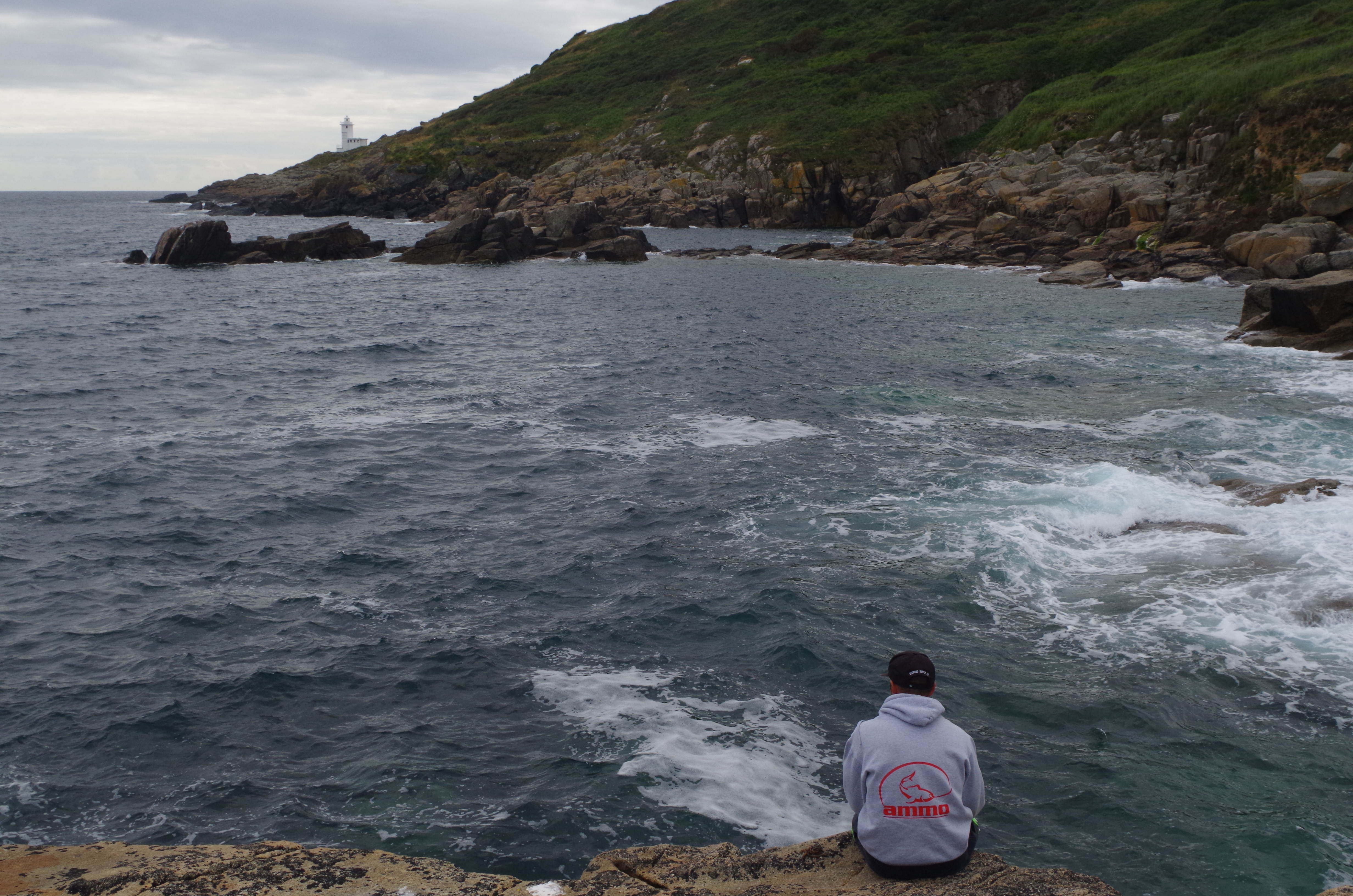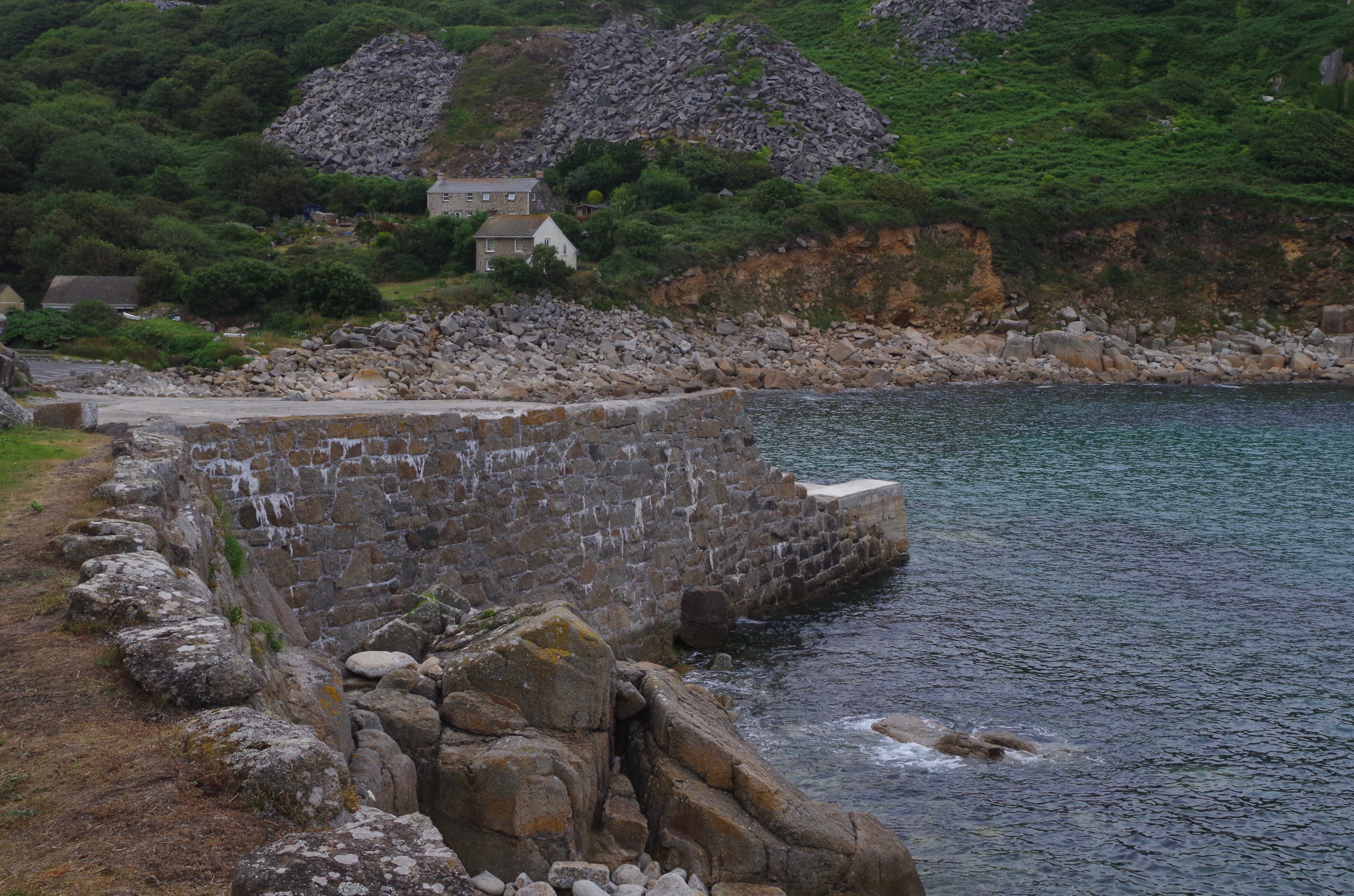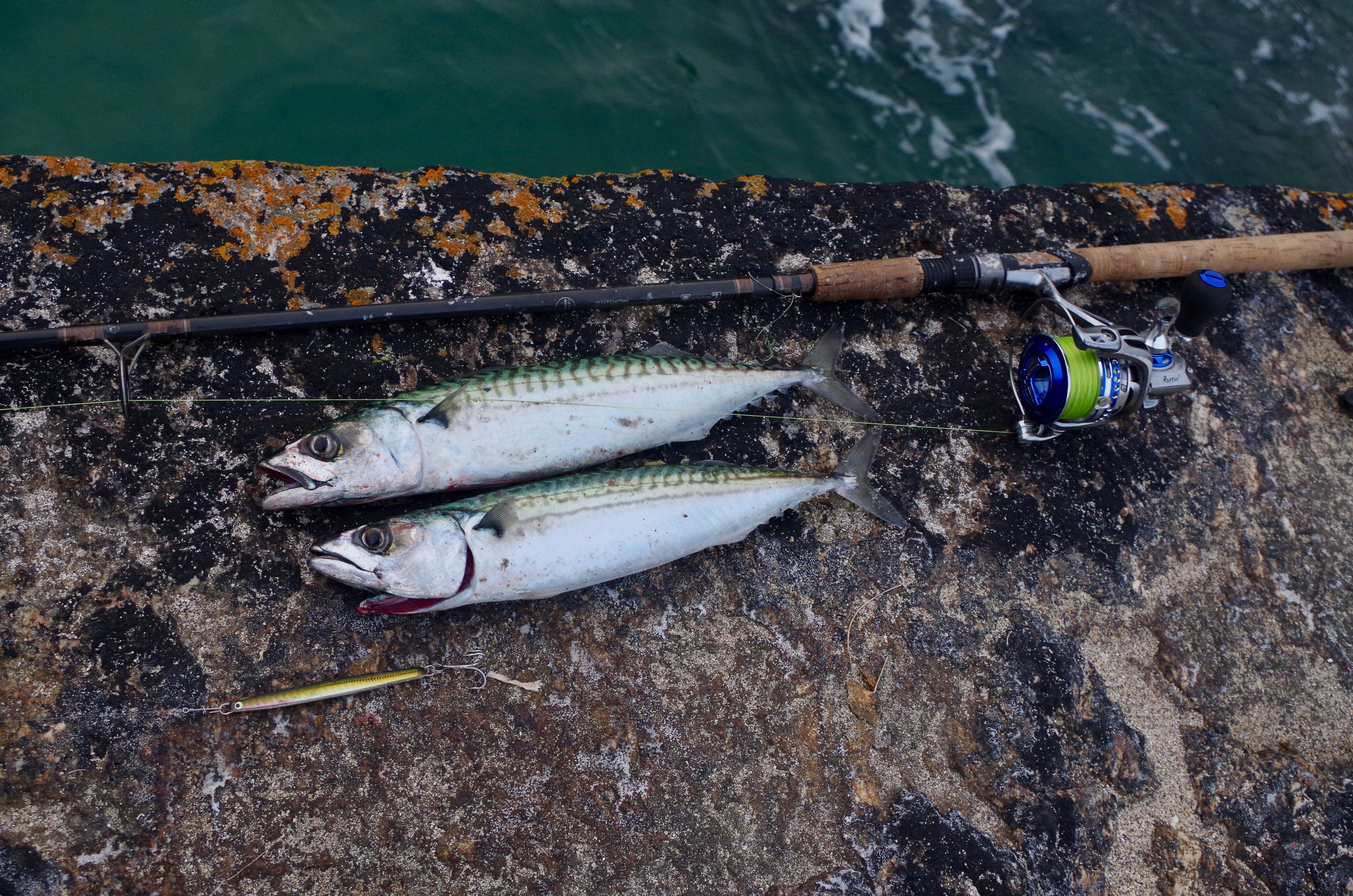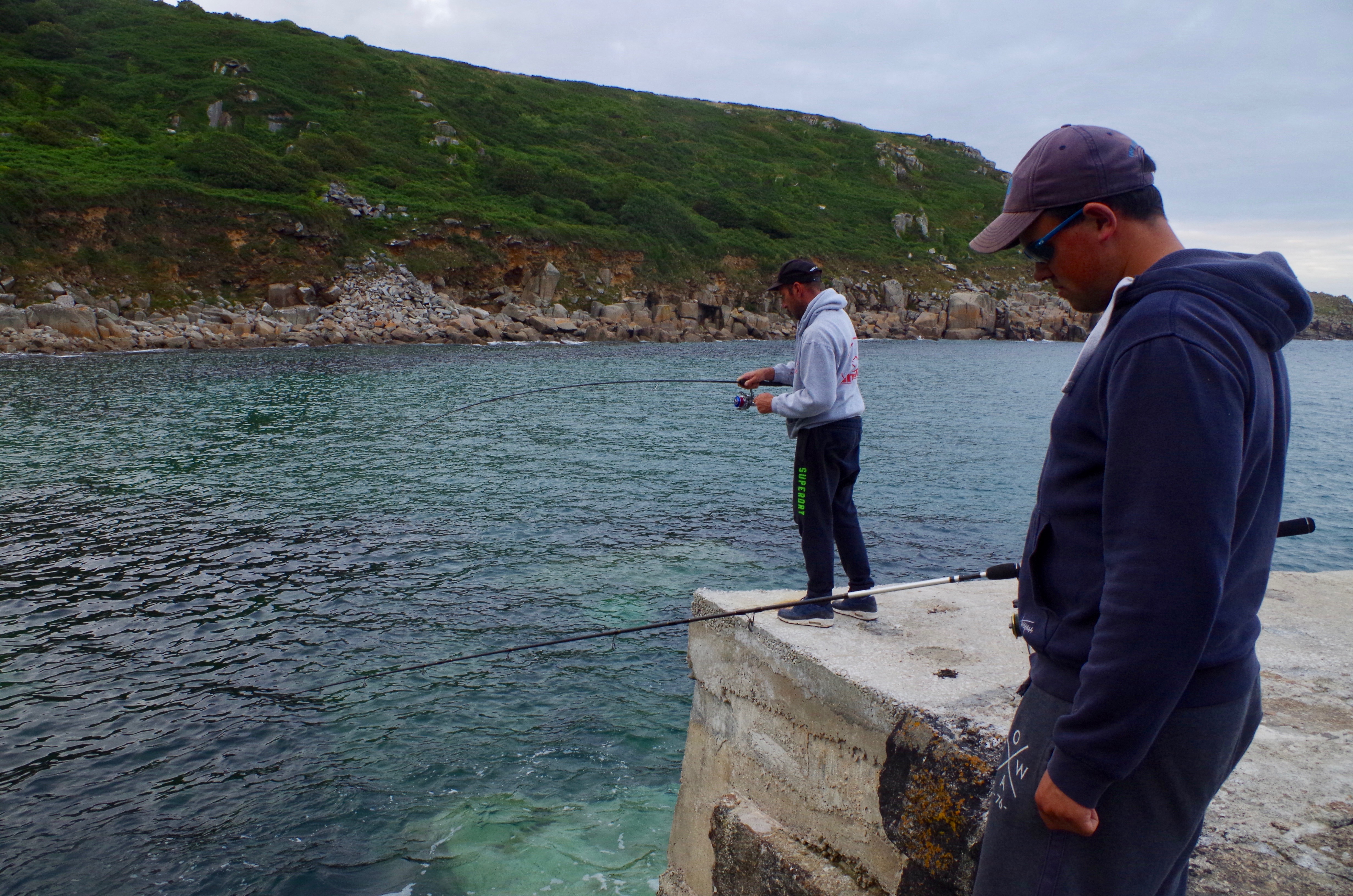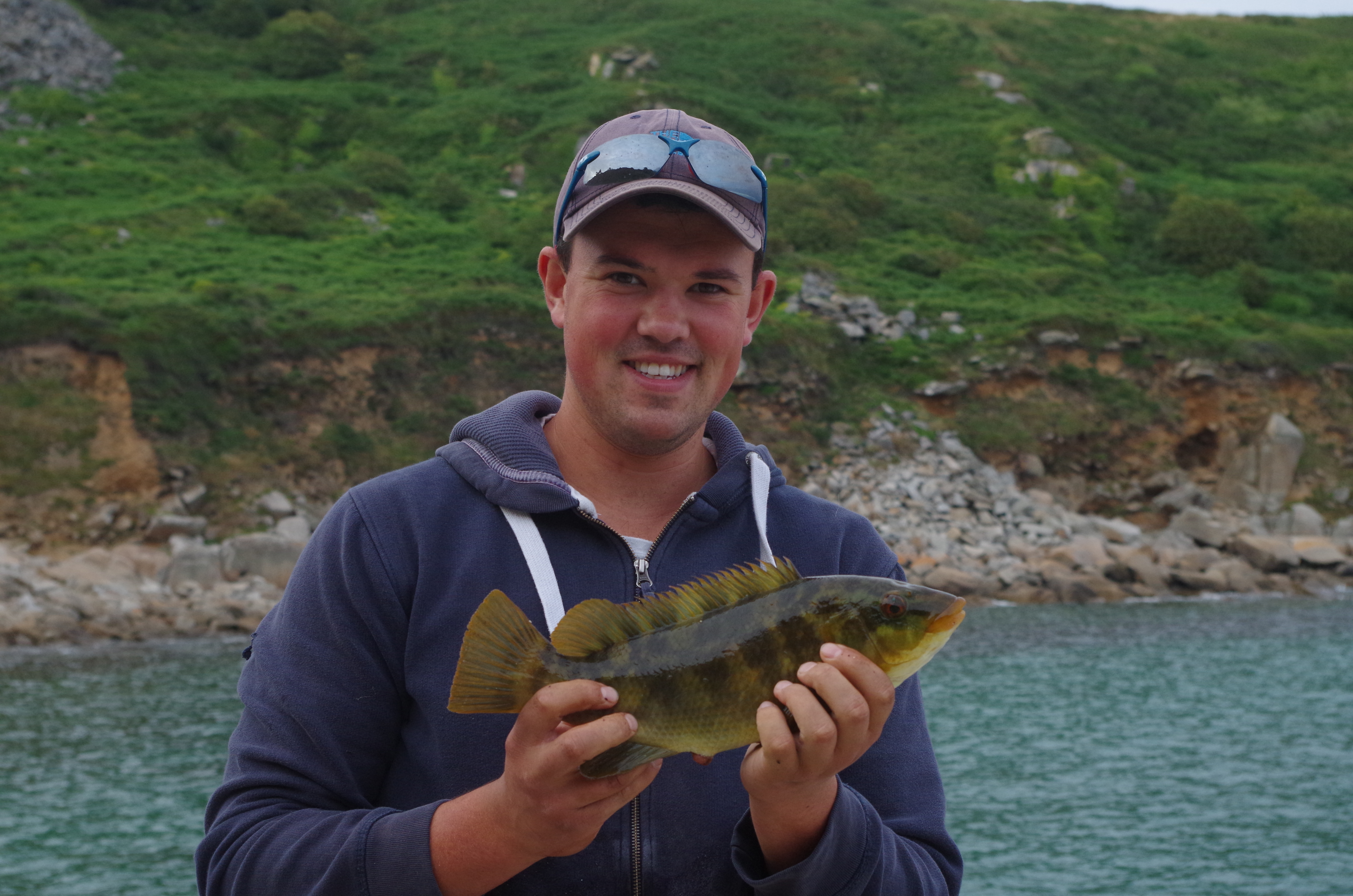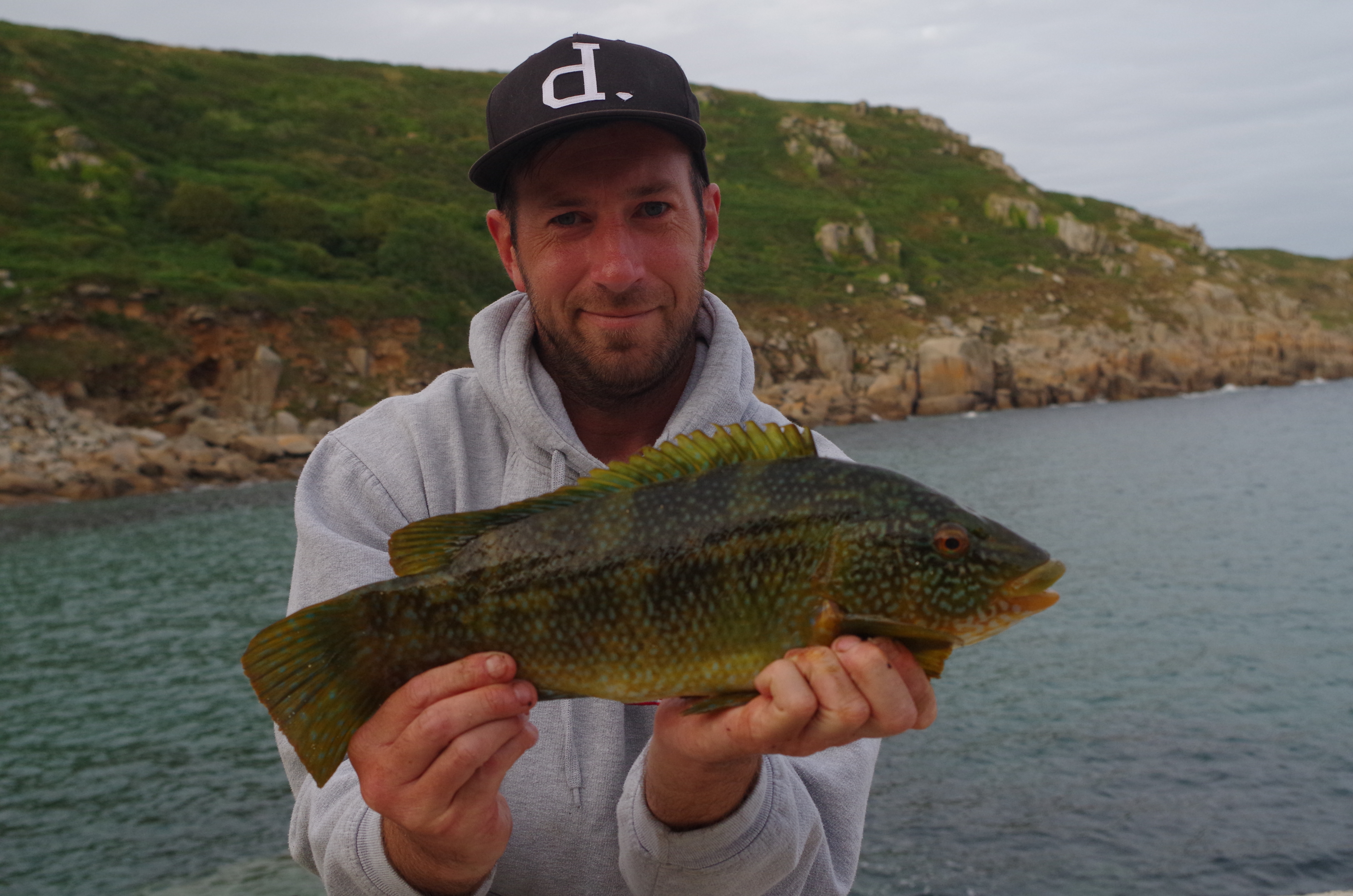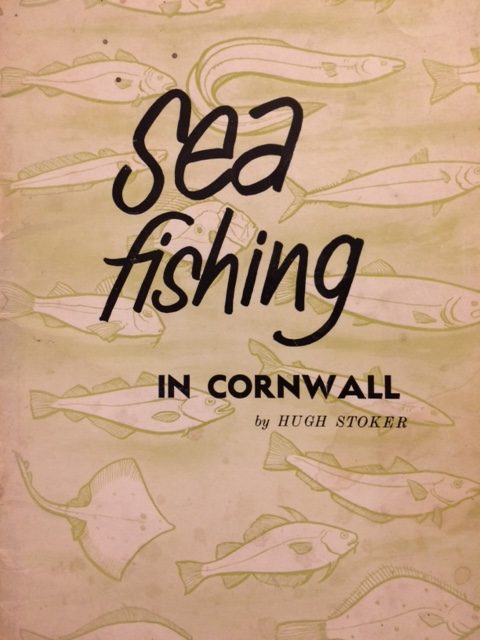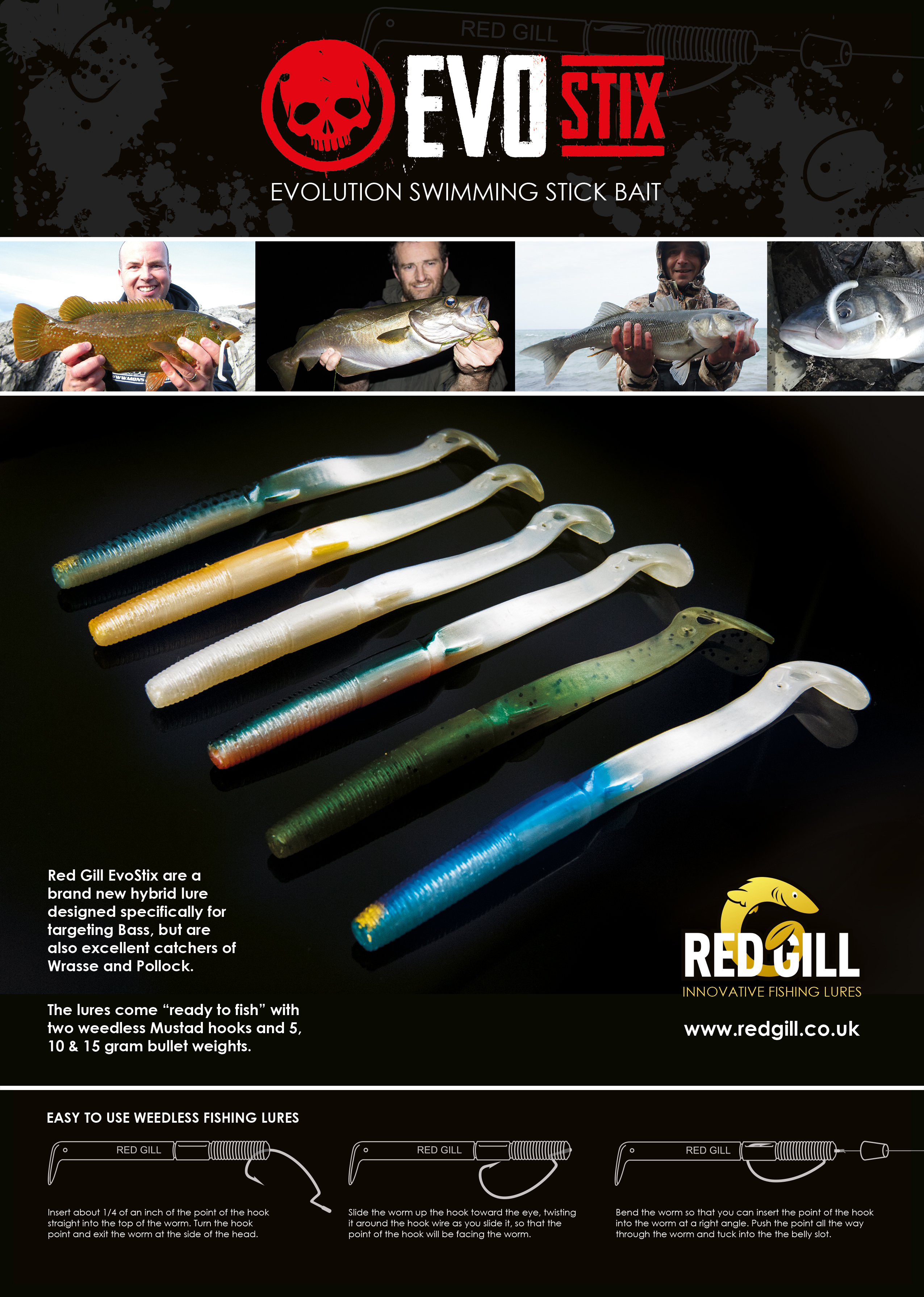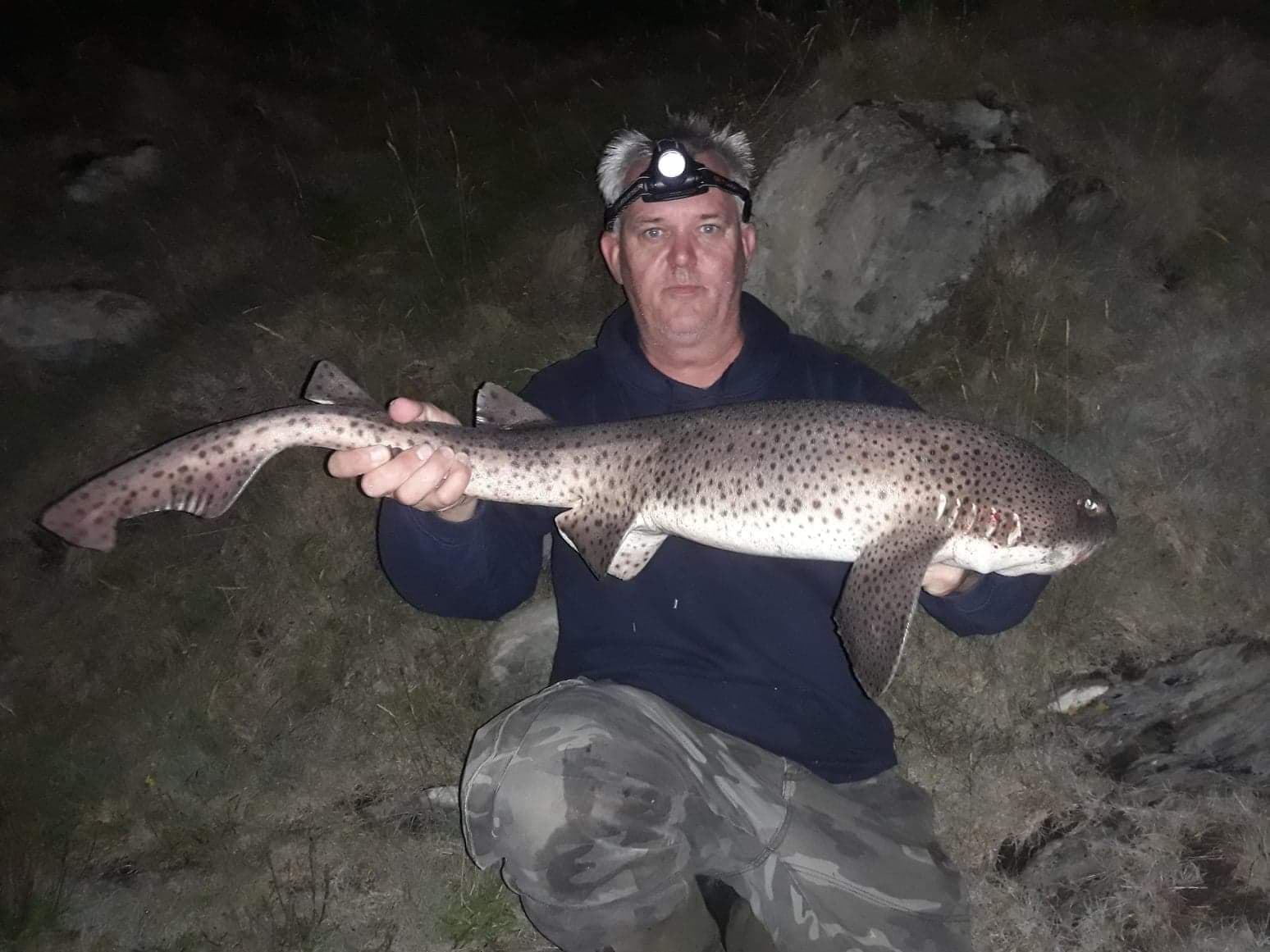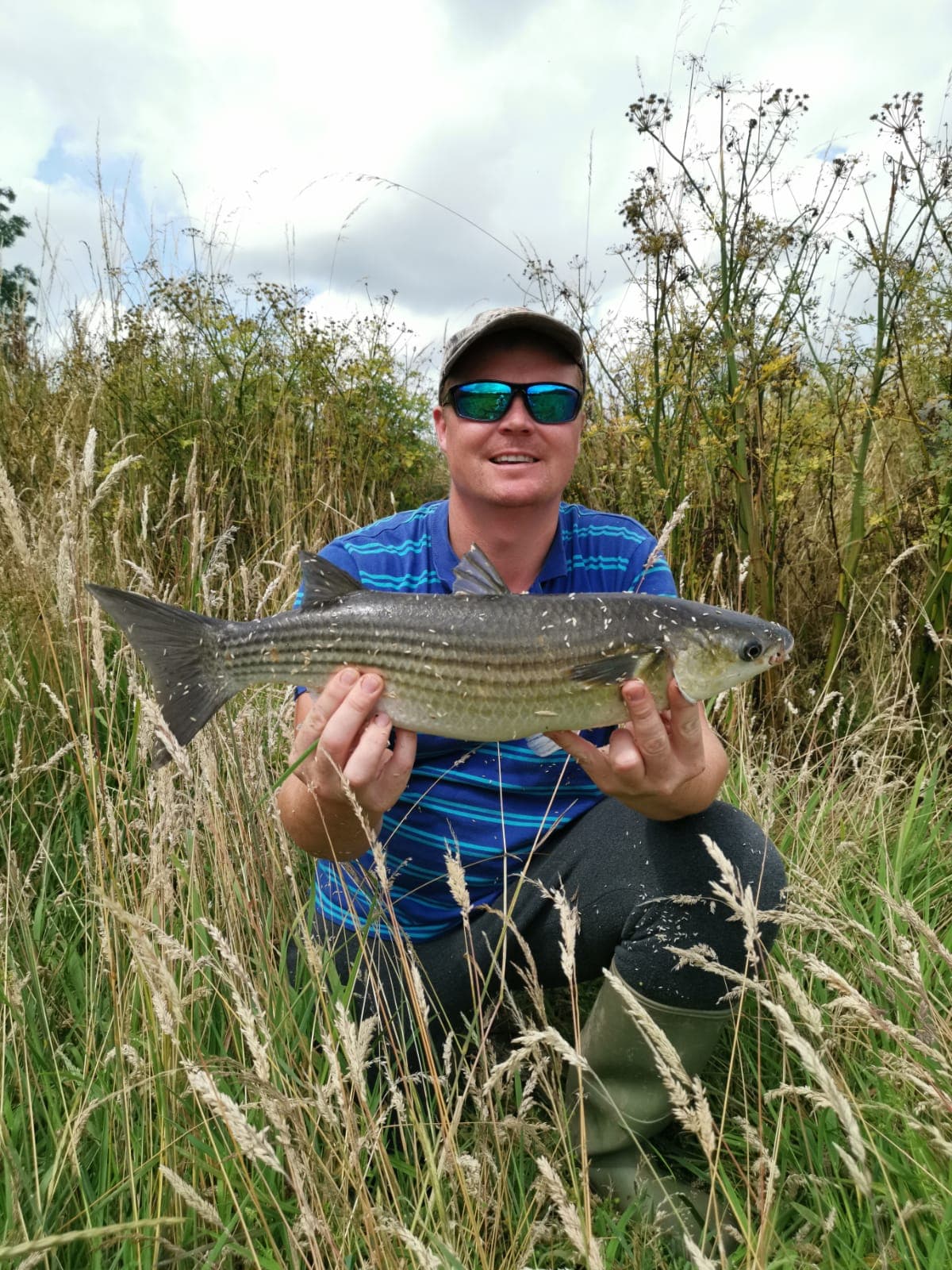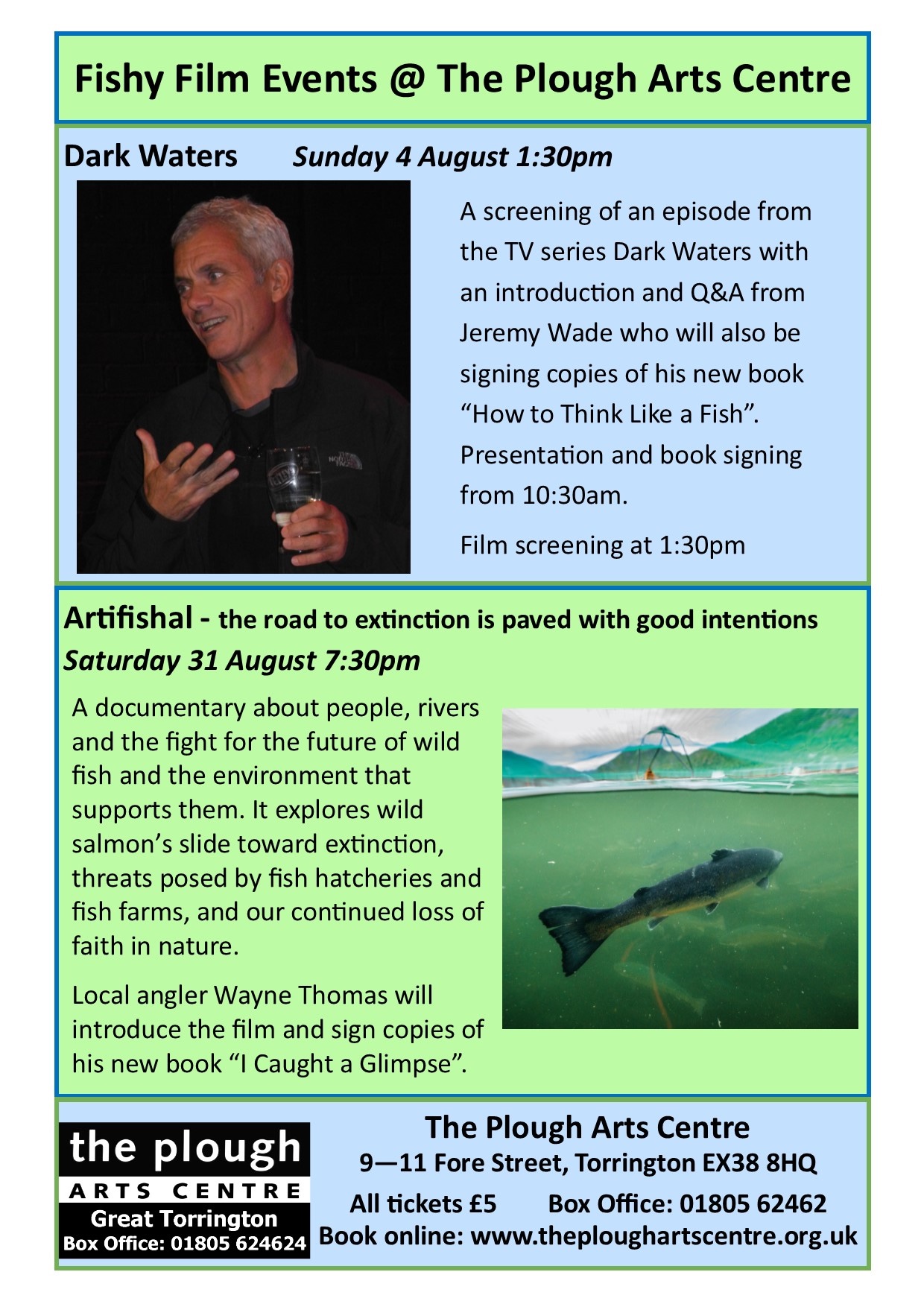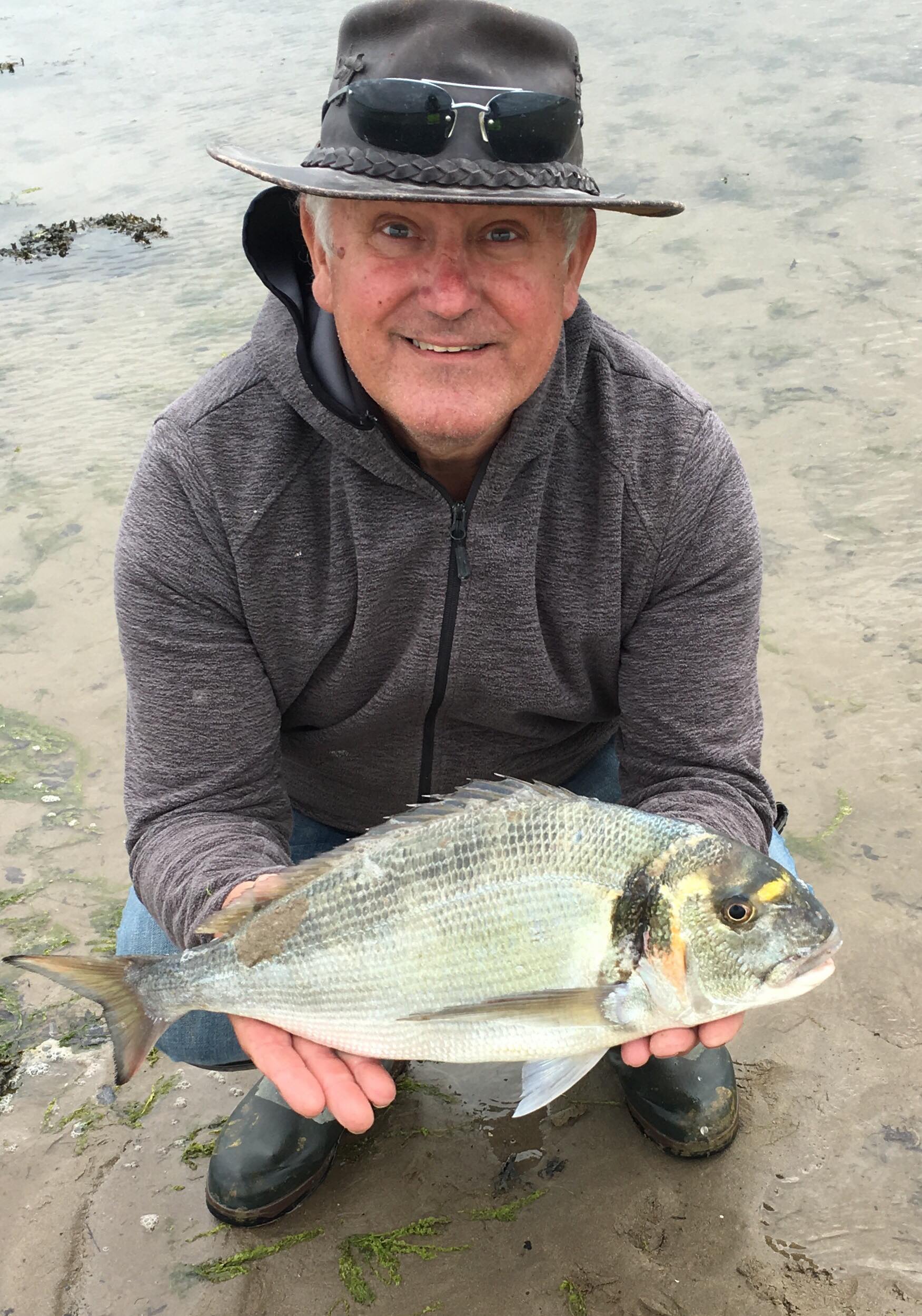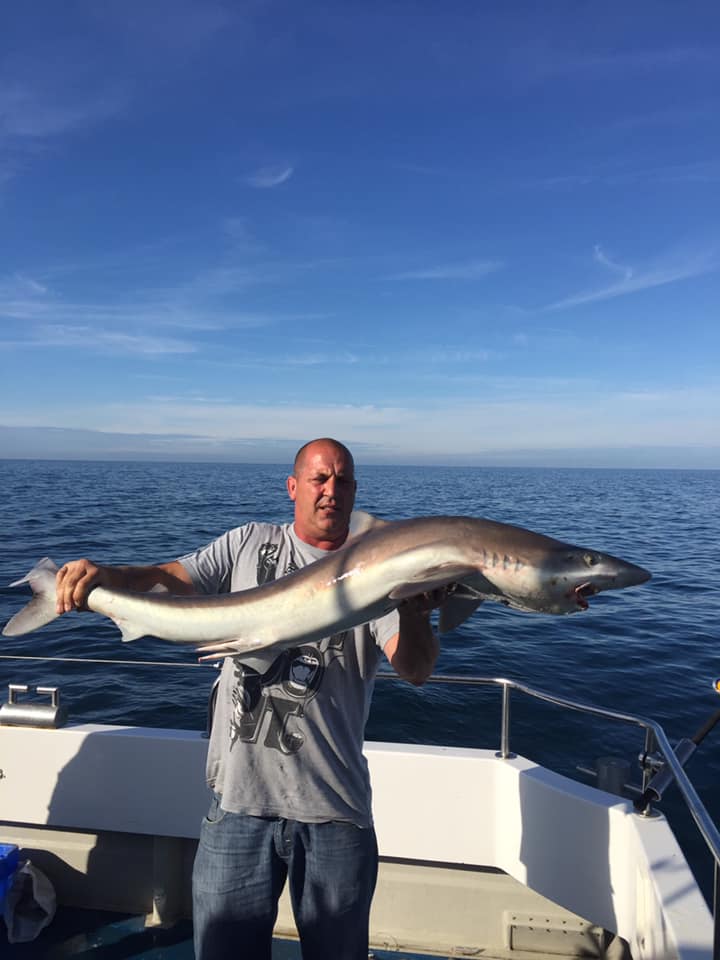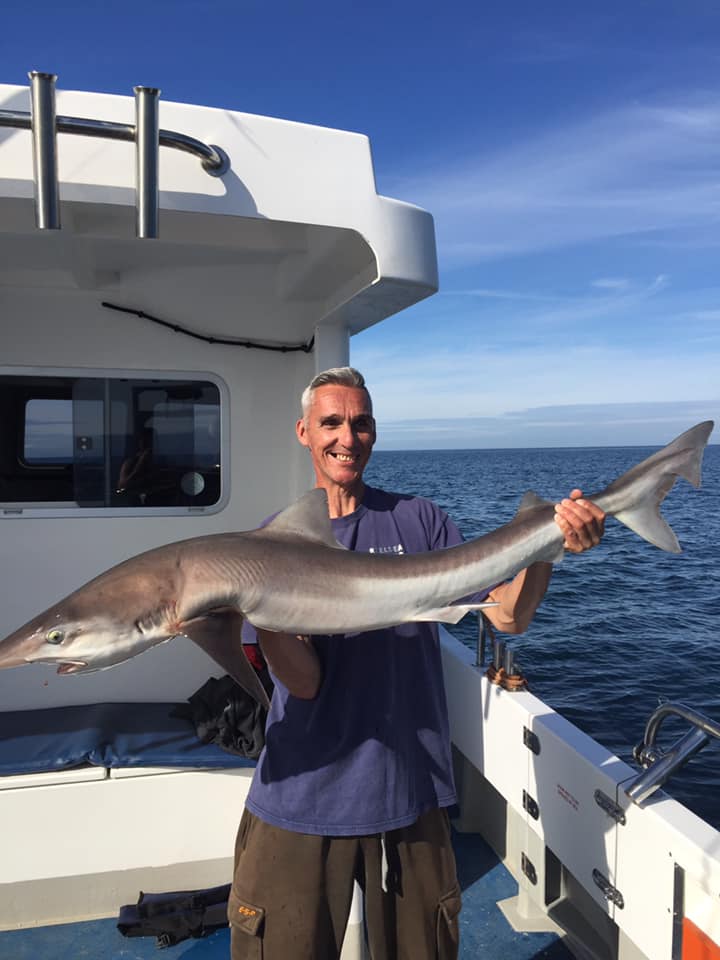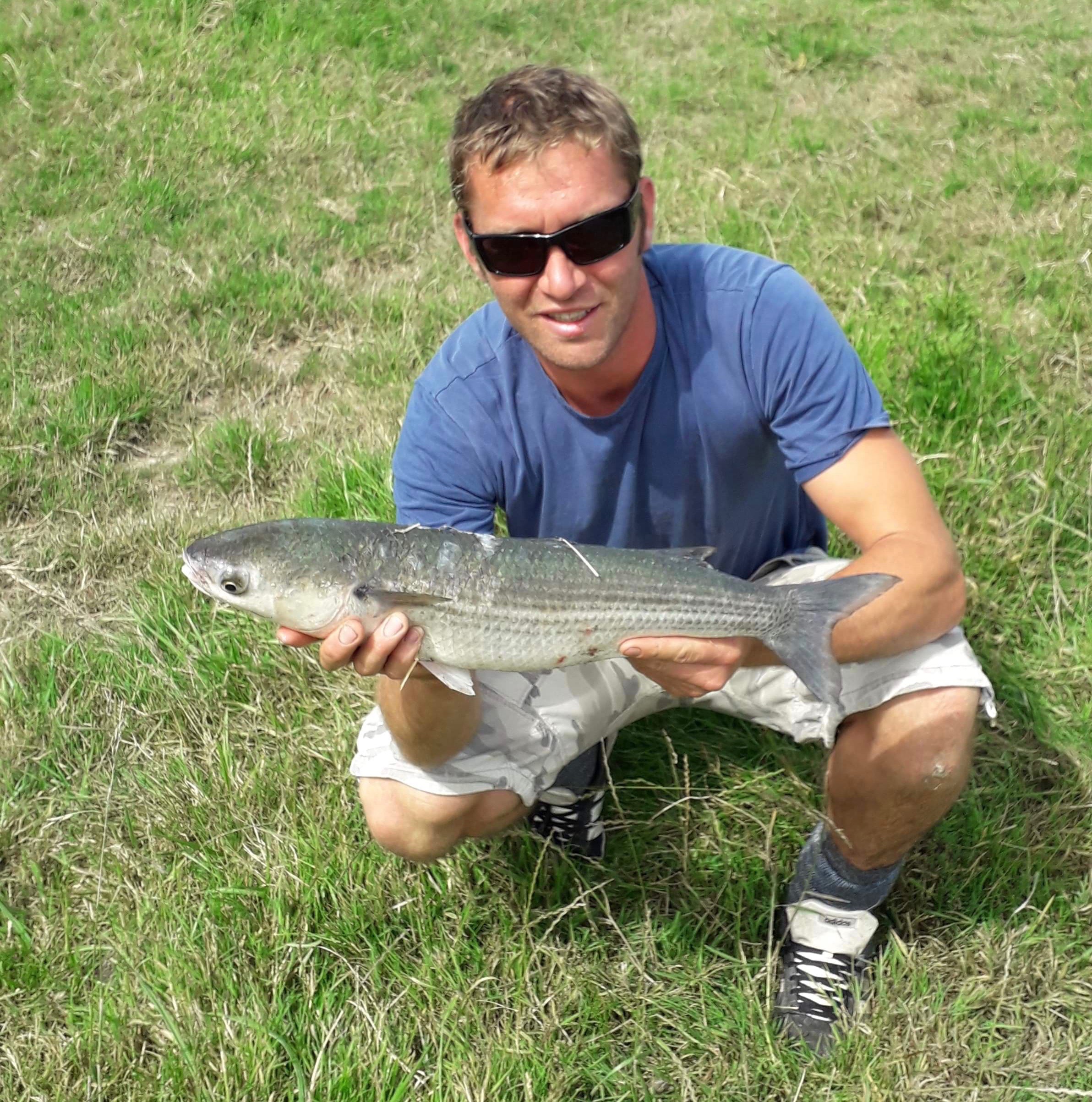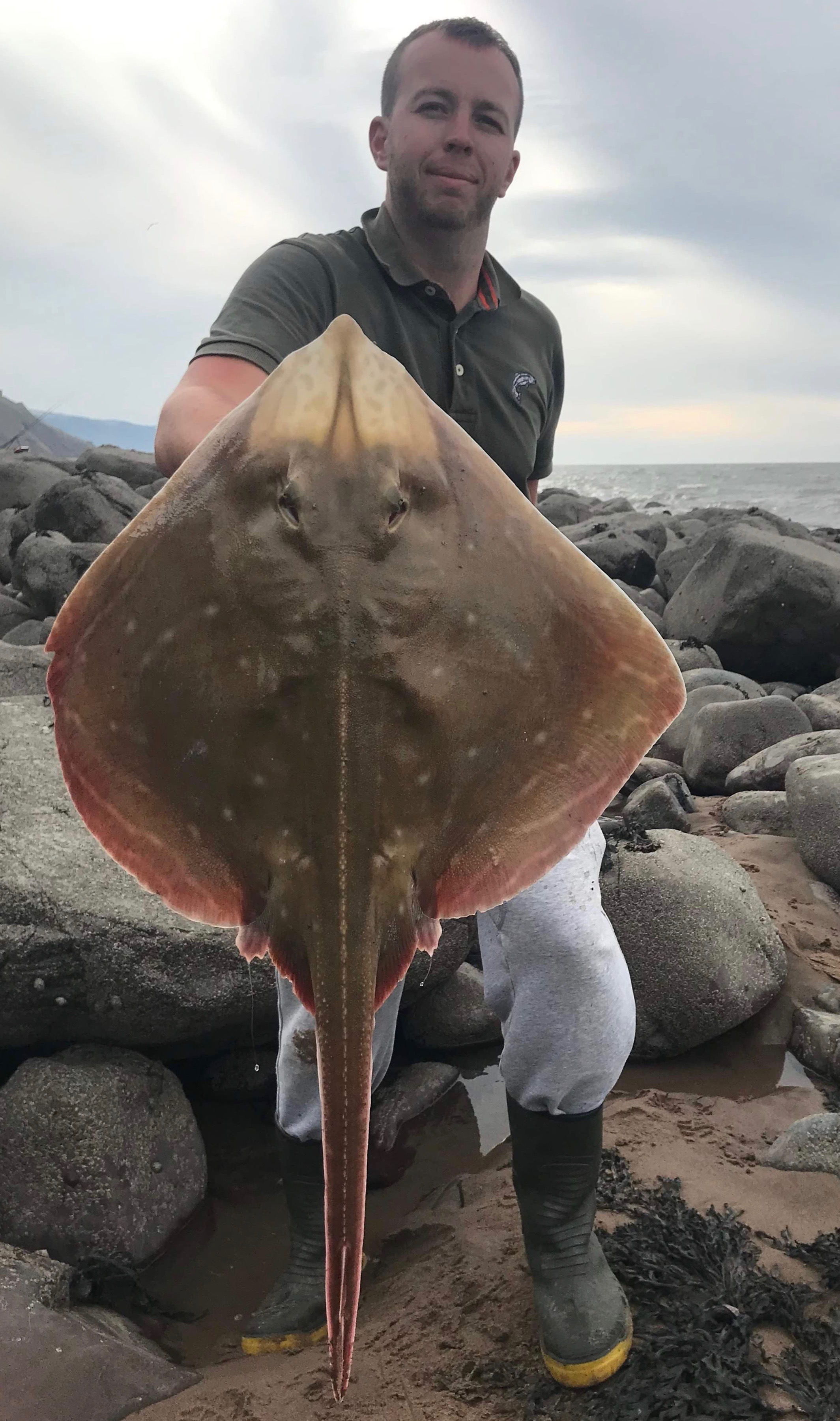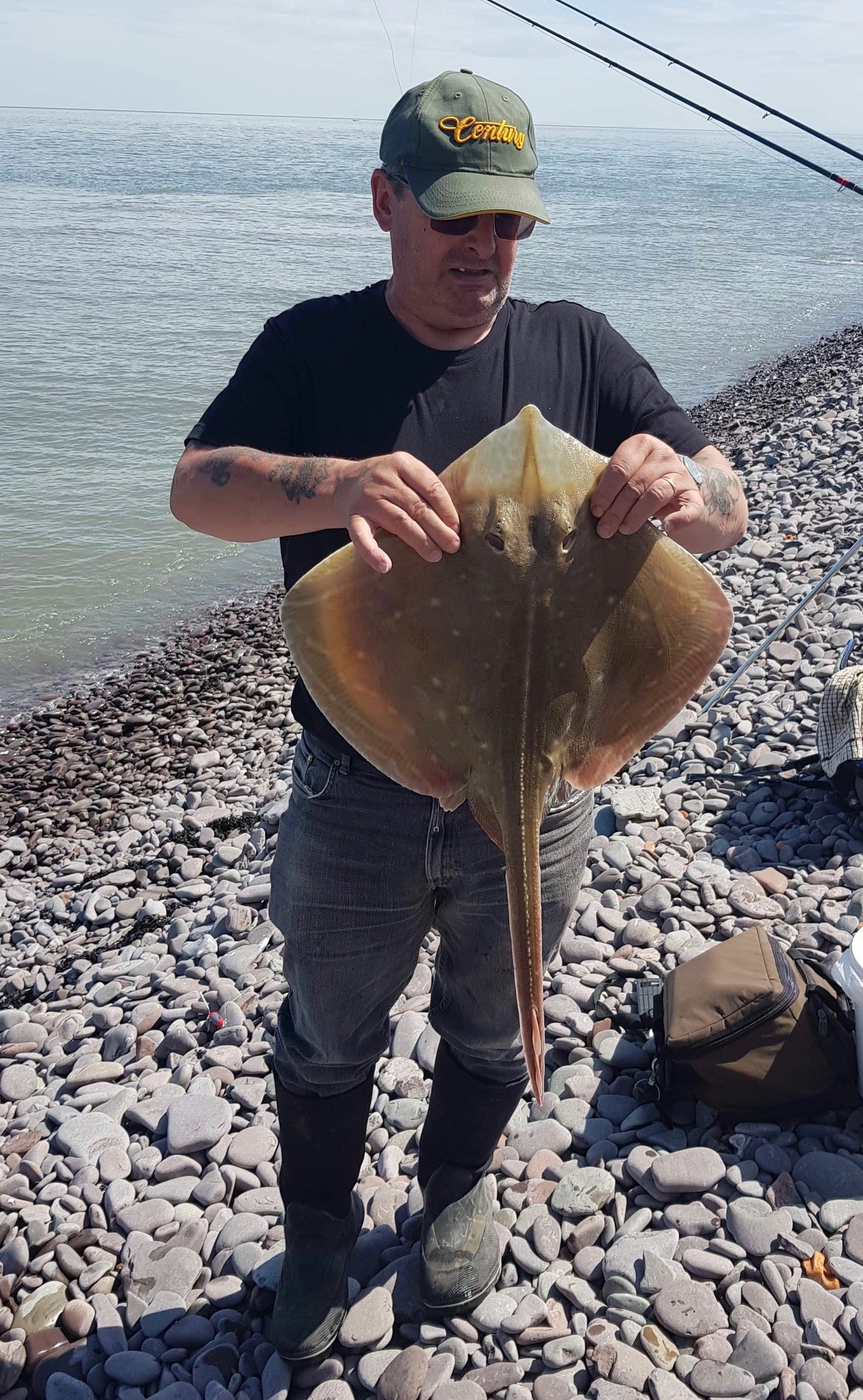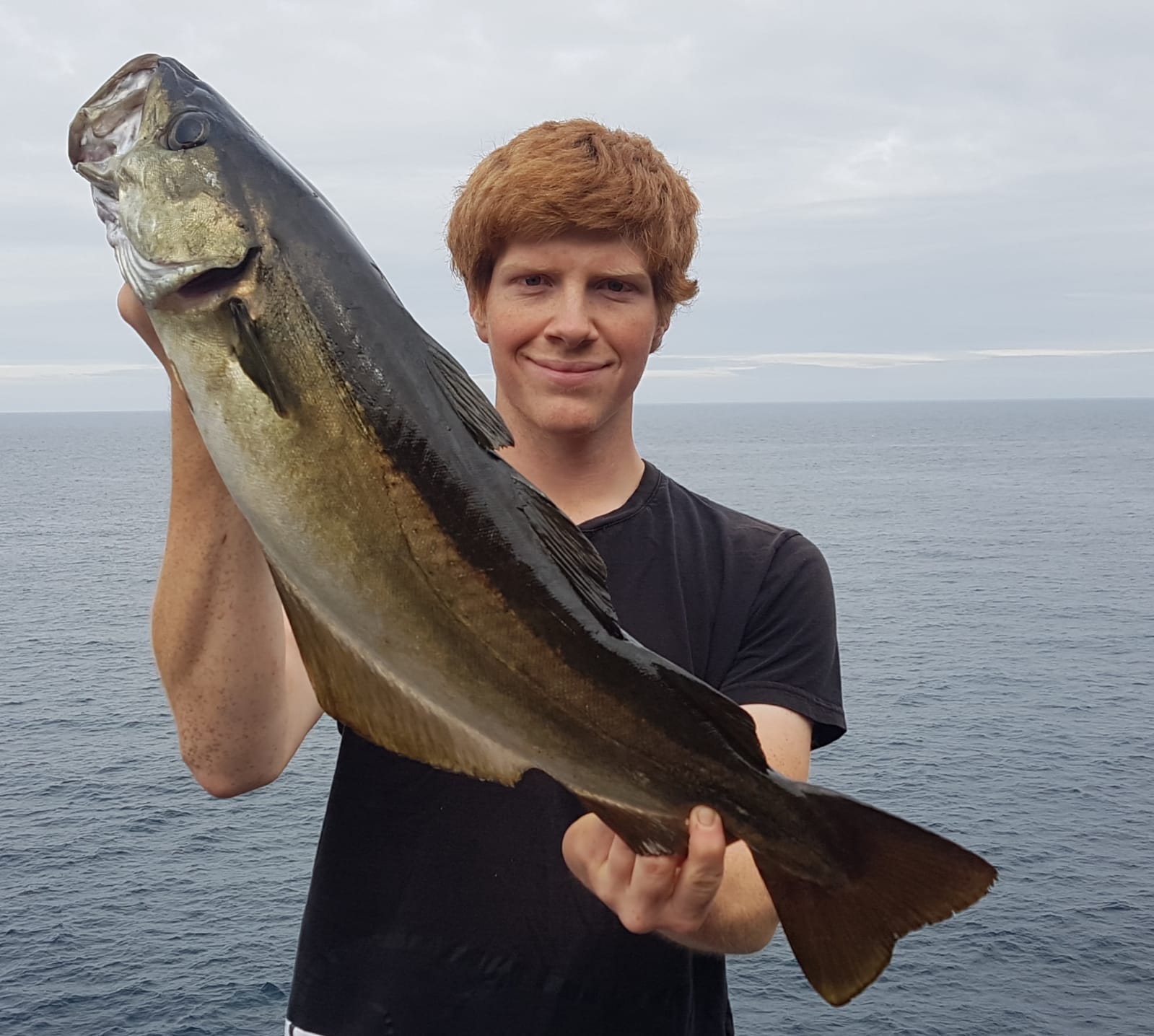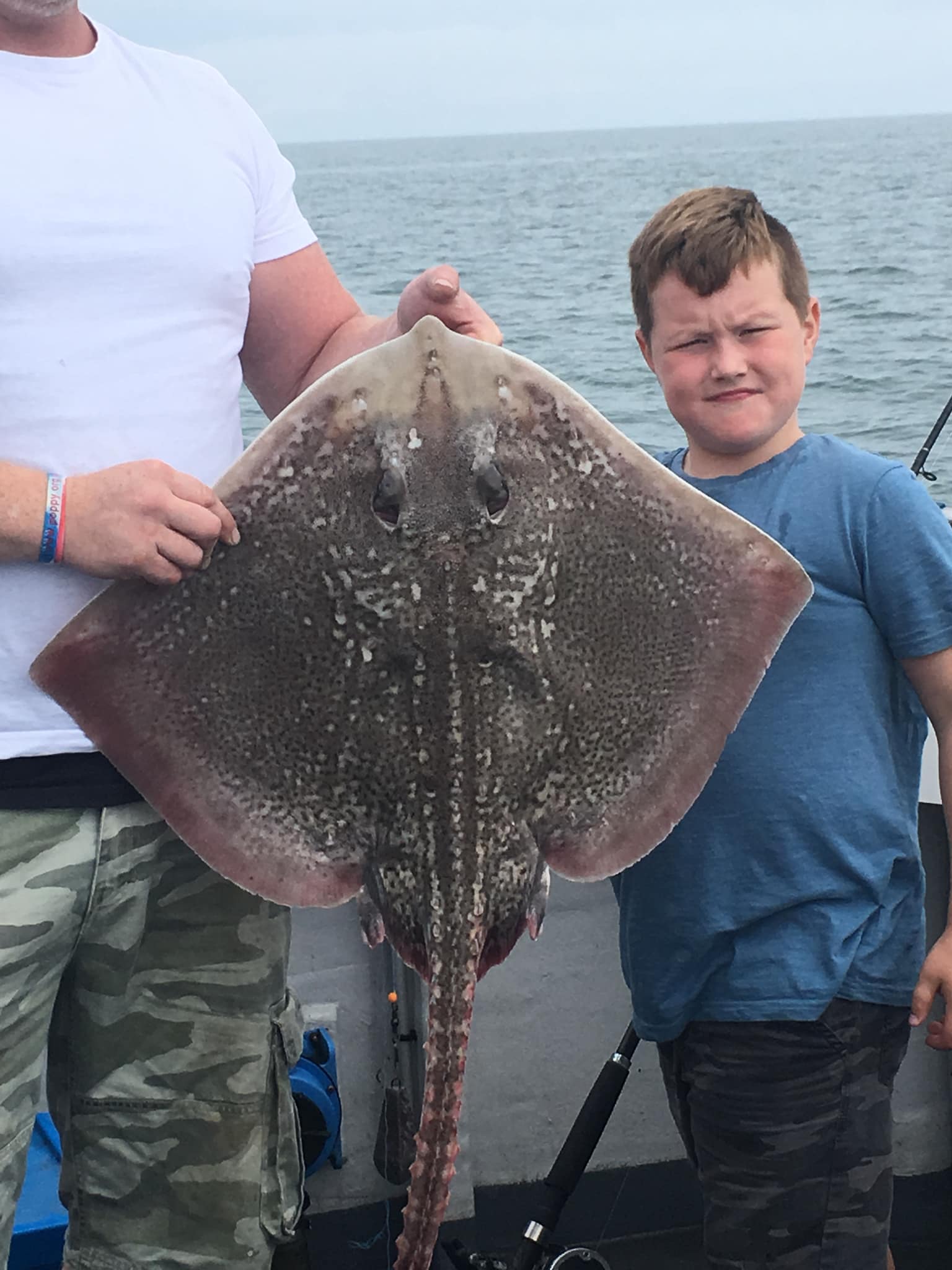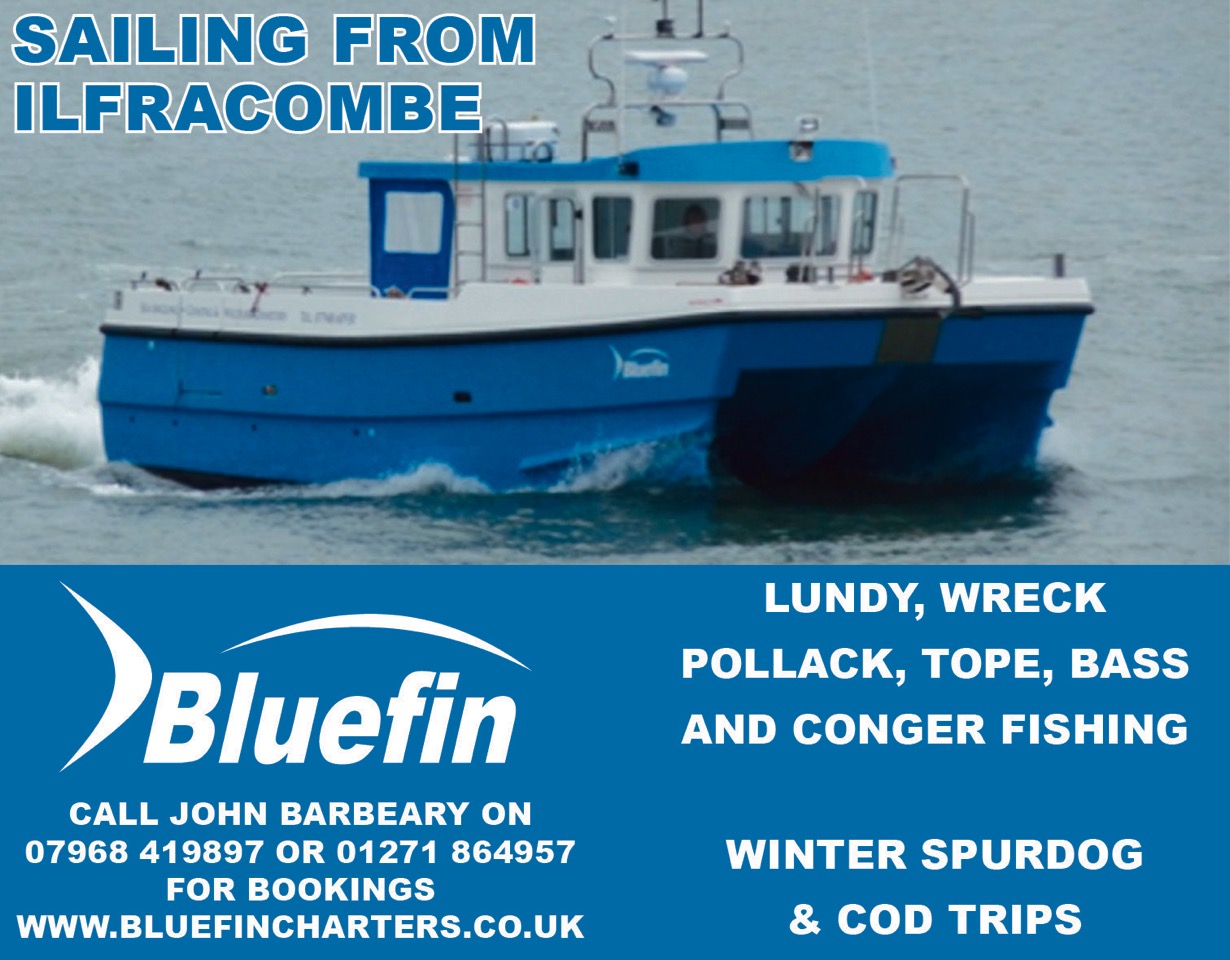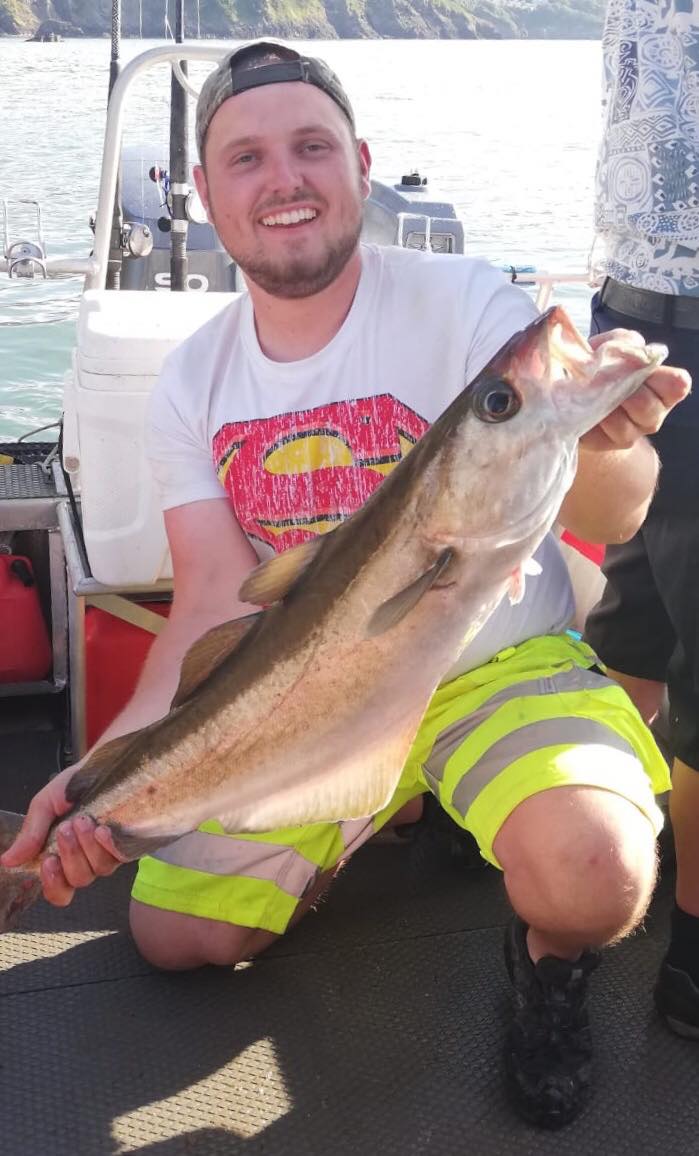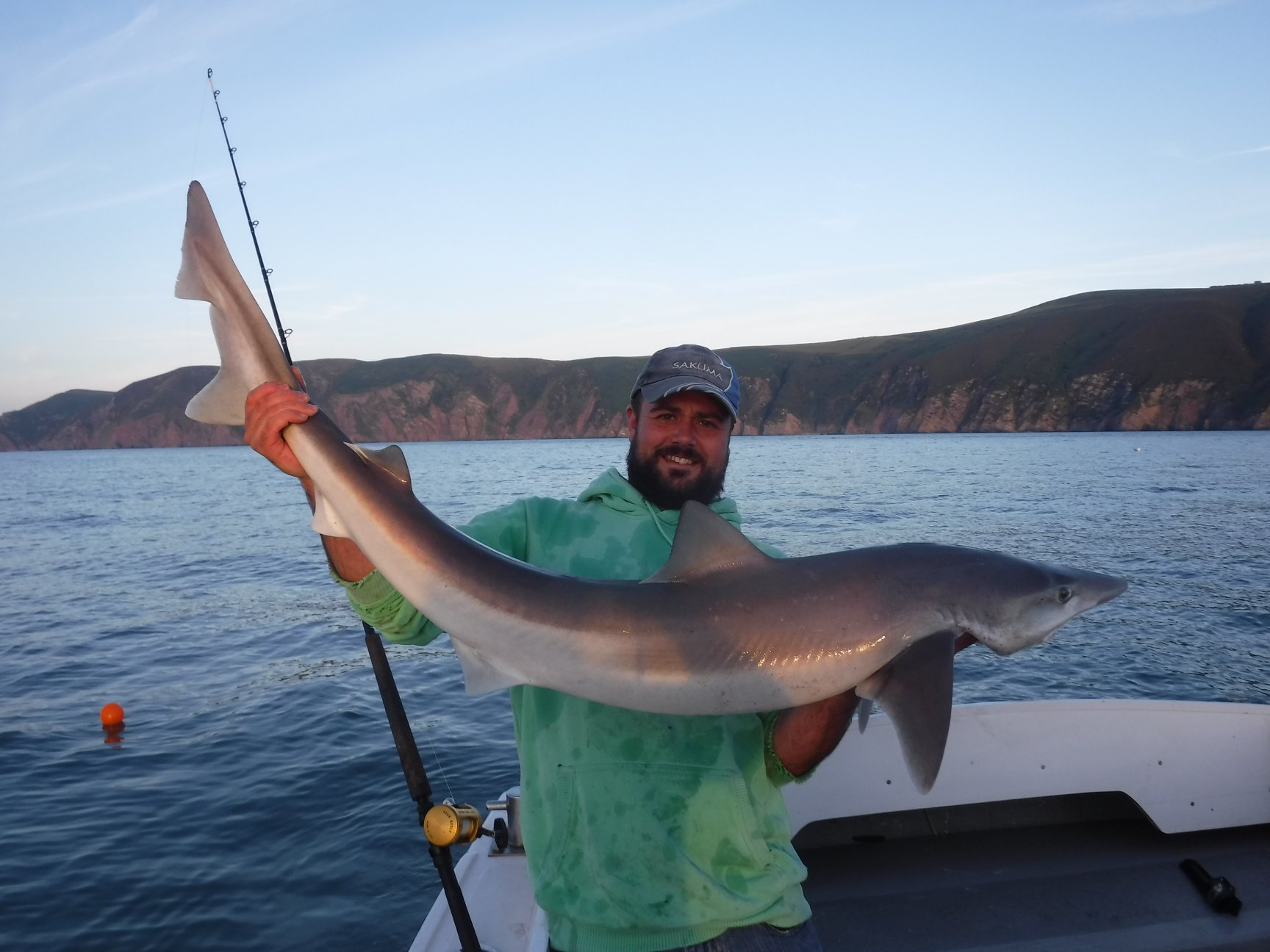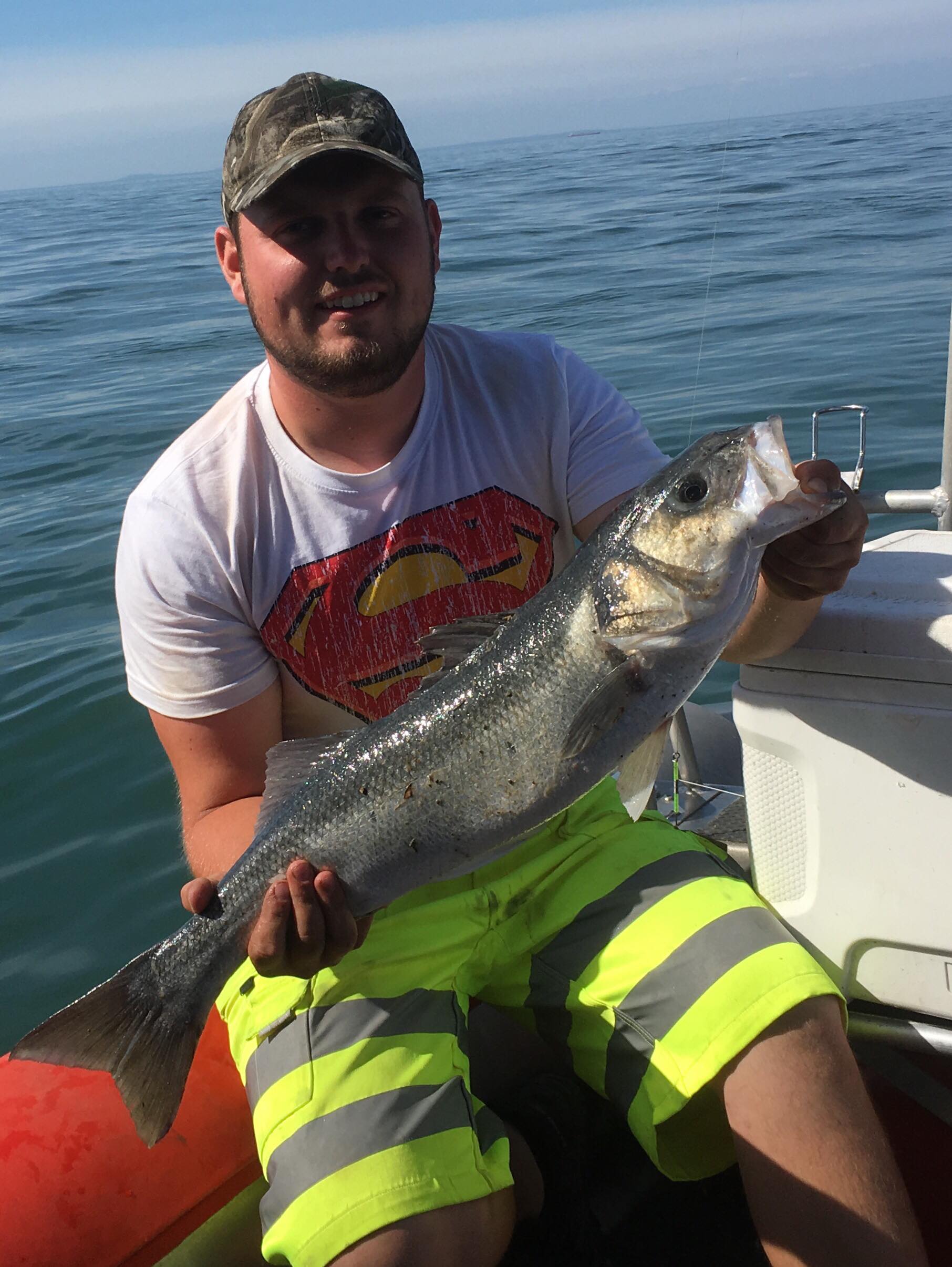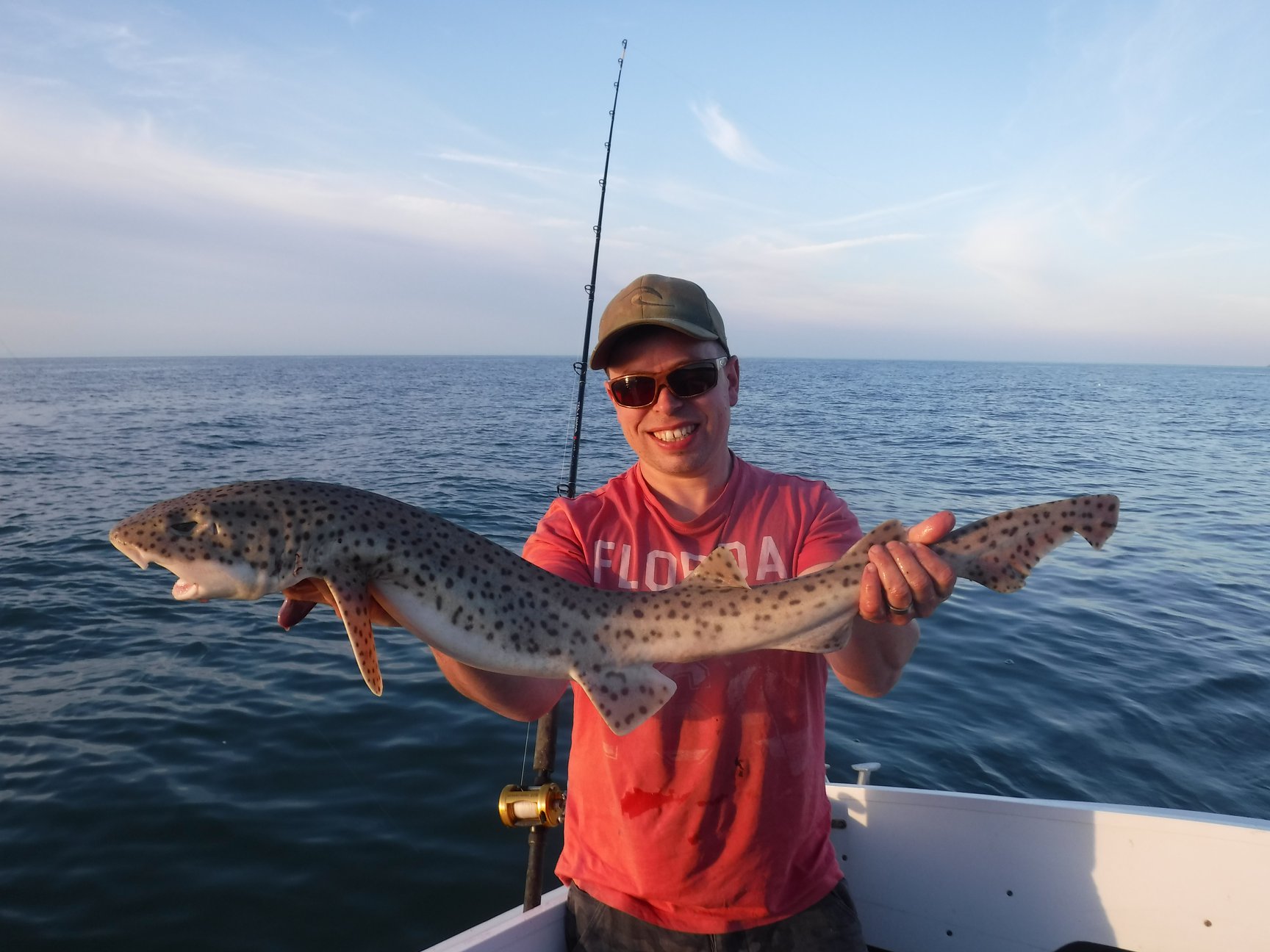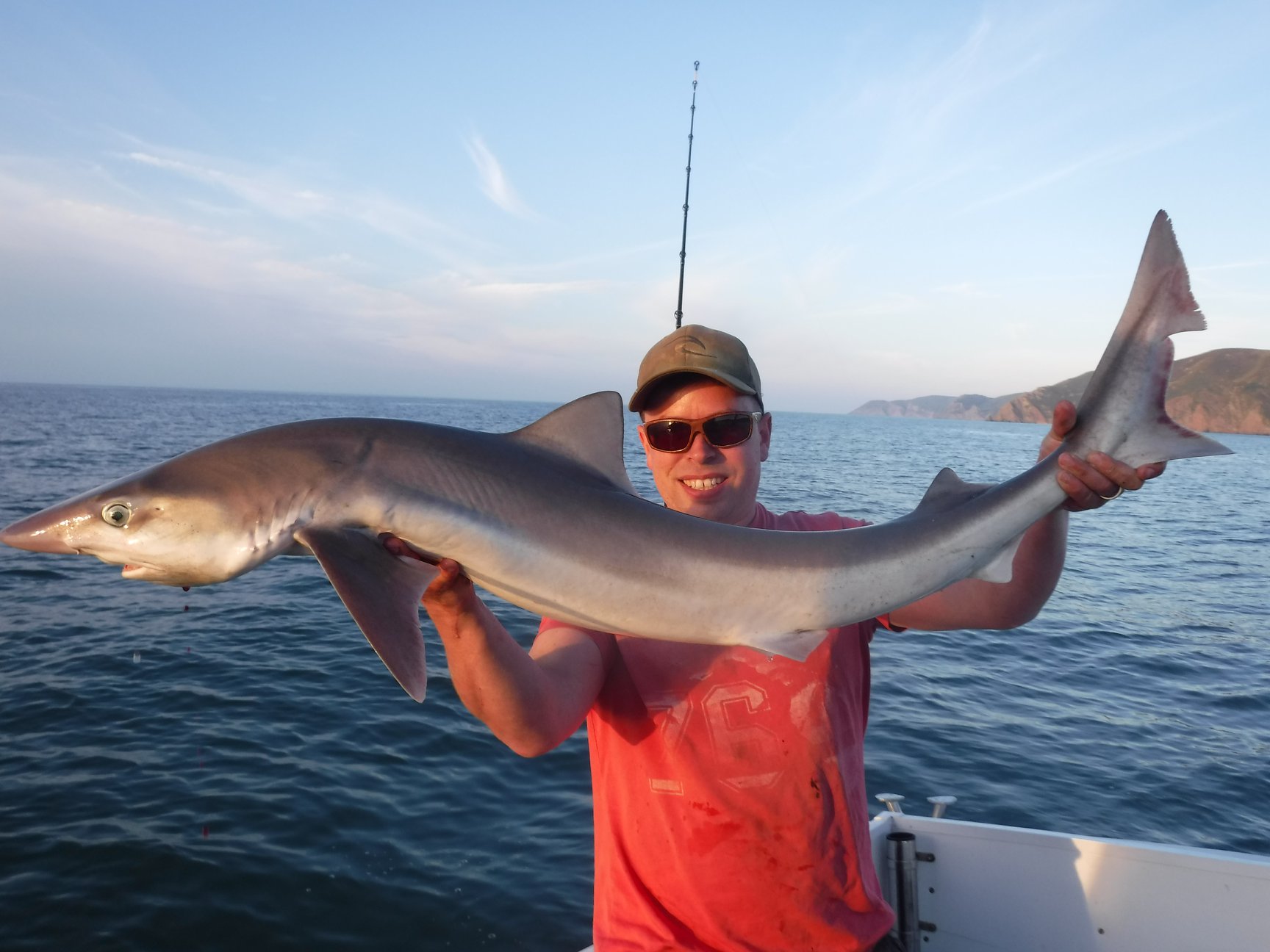Grey mullet are a challenging species often referred to as the wily grey ghosts. They have a well-deserved reputation for being difficult to tempt which is undoubtedly partially because they are one of the few fish in British waters that are often seen by anglers. Whilst stocks of mullet have declined, they are still undoubtedly one of the most common fish to be found around South Western coasts. They are also a fish that frequent a wide variety of coastal habitats from muddy estuaries, busy harbours to open coasts.
The National Mullet Club http://www.thenationalmulletclub.orgwere founded in 1975 and have since done a great deal of work to promote this sporting fish its pursuit and its conservation.
I joined four keen fellow mulleteers and members of the Combe Martin Sea Angling Club on a club outing to the Fowey estuary in South Cornwall. Club Secretary Nick Phillips had kindly offered to drive and told us to “bring what we liked there is plenty of room in the boot! ” Never tell an angler that even a mullet angler. We bundled it all in just after 6.00am on a warm summers morning and set off on quiet roads full of optimism for the day ahead.
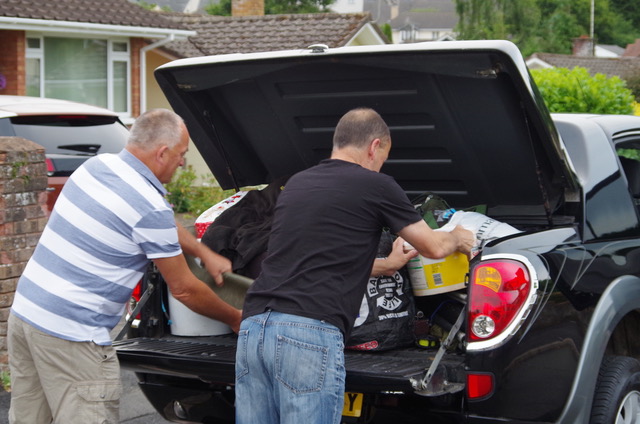
We started off in the lower estuary meeting up with a few members who had been there a couple of hours already and had landed mullet to almost three pounds.
The mark was at the mouth of a creek on the lower estuary opposite the China Clay works that has shipped Cornish Clay to locations around the world. The creek is host to a busy marina packed with a variety of boats with frequent to-ing and fro-ing of boat people.
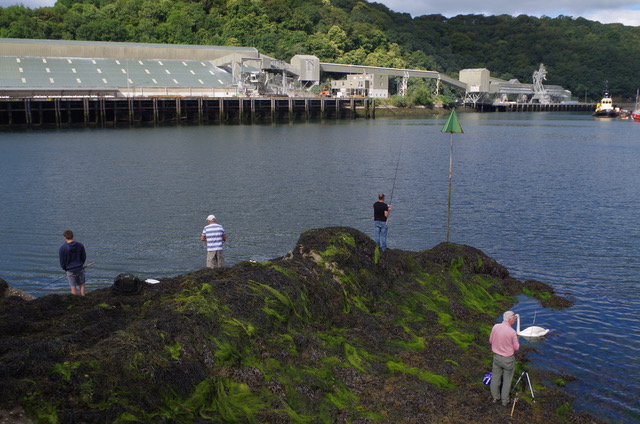
The creek has a distinguished literacy legacy as it was once home to Kenneth Grahame author of the charming book “The Wind In The Willows”. And today we had our own Toad with us as club secretary Nick Phillips held the Nick name “Toad” during his school days.
Most of us started our day suspending our bread-flake hook baits beneath brightly tipped floats. Long rods gave good line control and some members opted to use centre pin reels for direct contact if they were fortunate enough to hook a fish.
Over the next two or three hours we manipulated our floats as they drifted in the swirling currents remaining far too buoyant for our liking. We glimpsed a few mullet in the clear water and a few bites were missed. I was fortunate to hook the only fish of this part of the day a mini mullet that would have failed to make a pound in weight.
After a coffee in the marina café John Shapland and I broke ranks to try half an hour fishing from a Marina pontoon. With no success here it was time to make a move to our second venue of the day. The hamlet of Lerryn is a tranquil village nestled at the top of a wooded creek where the River Lerryn joins the top of the tide.
The creek is said to have inspired Kenneth Grahame who I mentioned earlier and the place oozes history and peacefulness despite the fact that it bustles with tourists on this summer day.
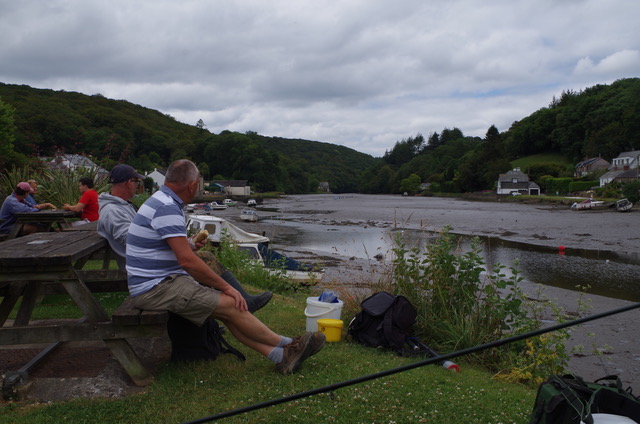
We arrive close to an hour before the flooding tide and enjoy a spot of lunch before assembling our tackles. We all elect to use feeder tactics here with a steady trickle of breadcrumb intended to attract the mullet to our bread flake offerings.
After discussing tactic’s, we all select our favoured positions and await the flooding tide with optimism. Swallows swooped low over the stream, children braved the stepping stones and paddled in the cooling water. Cream teas, ice creams and Cornish pasties were being savoured on the picnic benches in an idyllic scene of a summers Saturday.
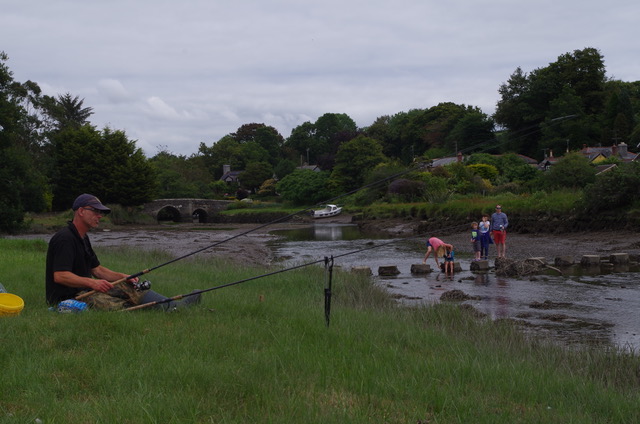
The tide trundles slowly up the muddy creek bringing with it a new found flood of life. We sit quietly on the banks watching the water intently. A few handfuls of mashed bread are tossed on the mud, feeders packed and hooks loaded. Slowly the water rises and with it come the welcome swirls as fish seek food in the warm water.
John Shapland and I have set our stalls on the grassy bank opposite the busy village centre. I watch John Avery, Nick Phillips and his son Jack a hundred yards down the creek and I am pleased to see John with a bent rod and Nick wielding the landing net successfully.
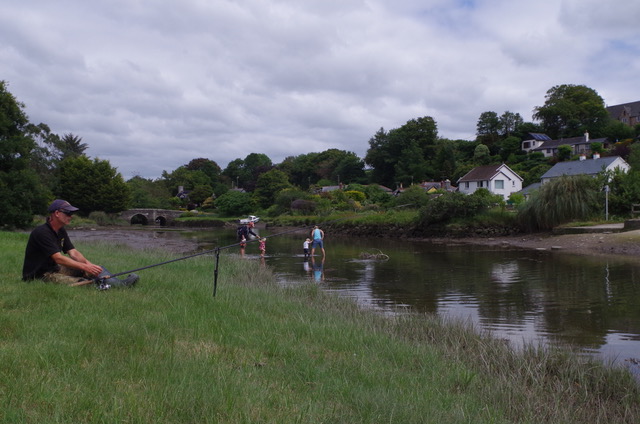
This bodes well I think and its not long before Johns quivertip plunges over and a hard fighting 3lb plus mullet fights the rod and line before being engulfed in the waiting net.
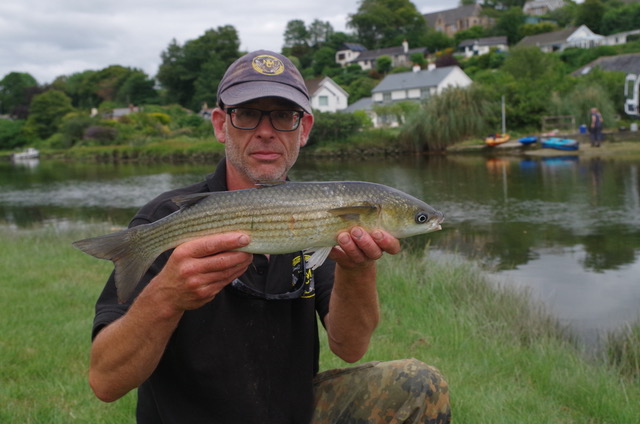
After their initial success further down the creek our three fellow anglers on the far bank move opposite with bites becoming less frequent as the fish move up higher in the creek. Its not long before John Avery is again in action hooking a mullet of a couple of pounds within minutes of relocating.
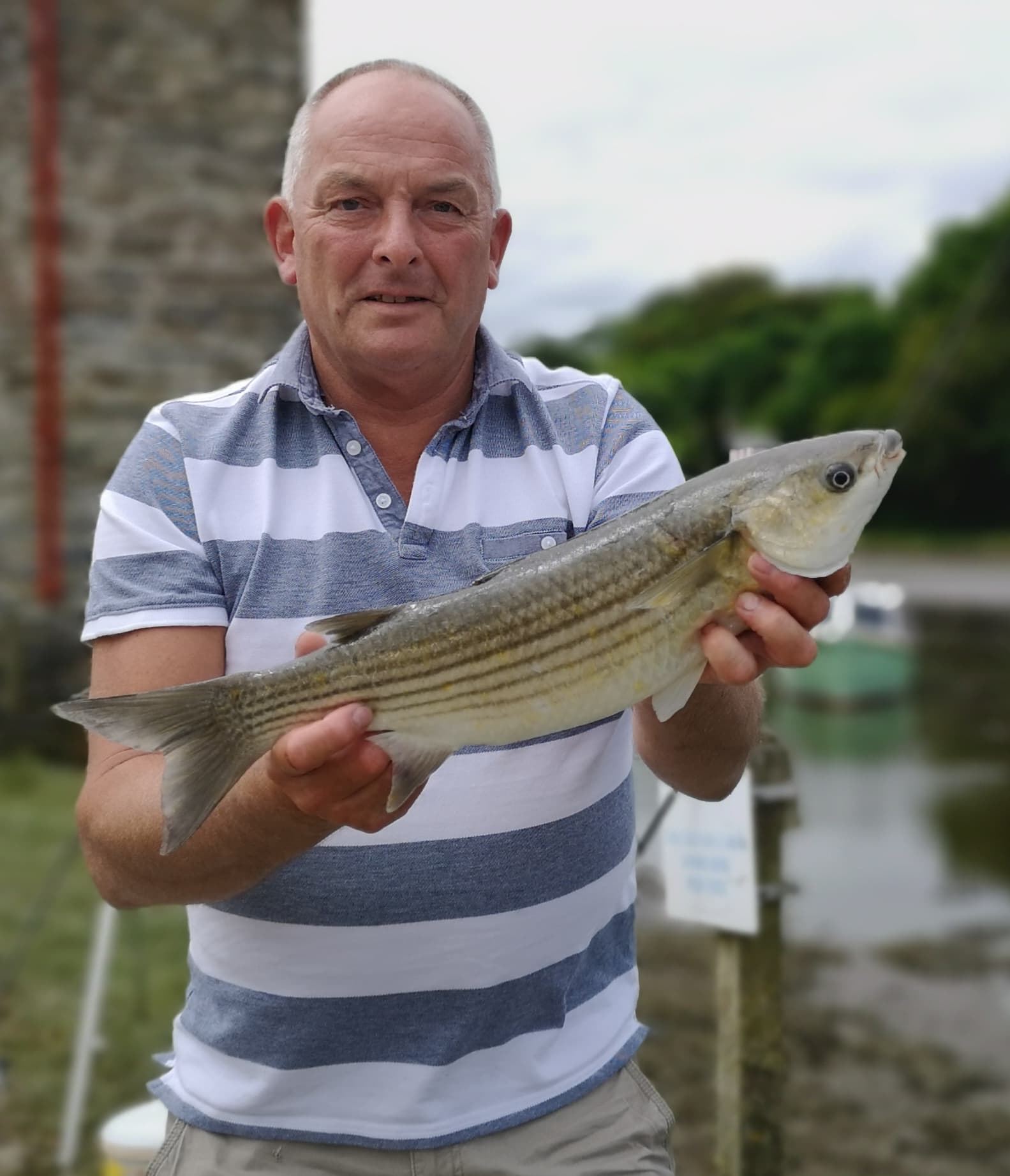
Our attention is focused upon our rod tips that tremble and shake as mullet sample our hook baits. It’s very much a case of sitting on your hands waiting for that decisive movement on the tip before lifting the rod and setting the hook.
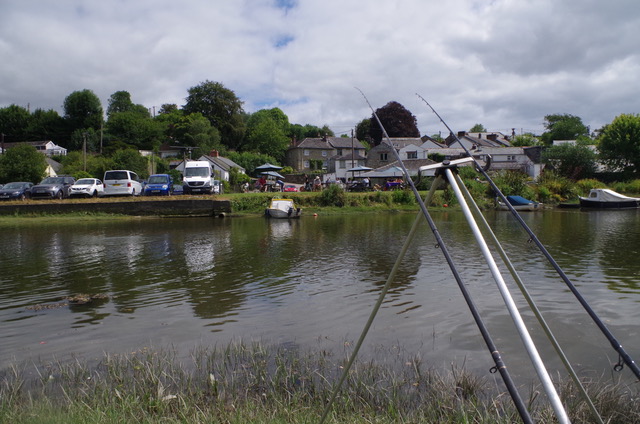
I begin to wonder if I will get that positive bite and lift the rod without connecting a couple of times, perhaps a little too hastily. Eventually there is a serious lunge of the tip of my right hand rod just as I am rebaiting the left the rod. I grab the rod and find myself connected to a hard fighting mullet that pulls the scales to 3lb 8oz.
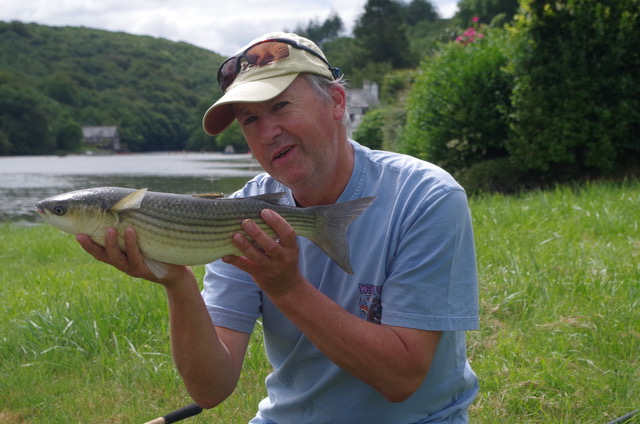
I am pleased to look across the river to see young Jack engaged in an epic battle with a mullet that seems determined to head down river to Fowey. The fish of 3lb 8oz is successfully netted fifty or so yards further down.
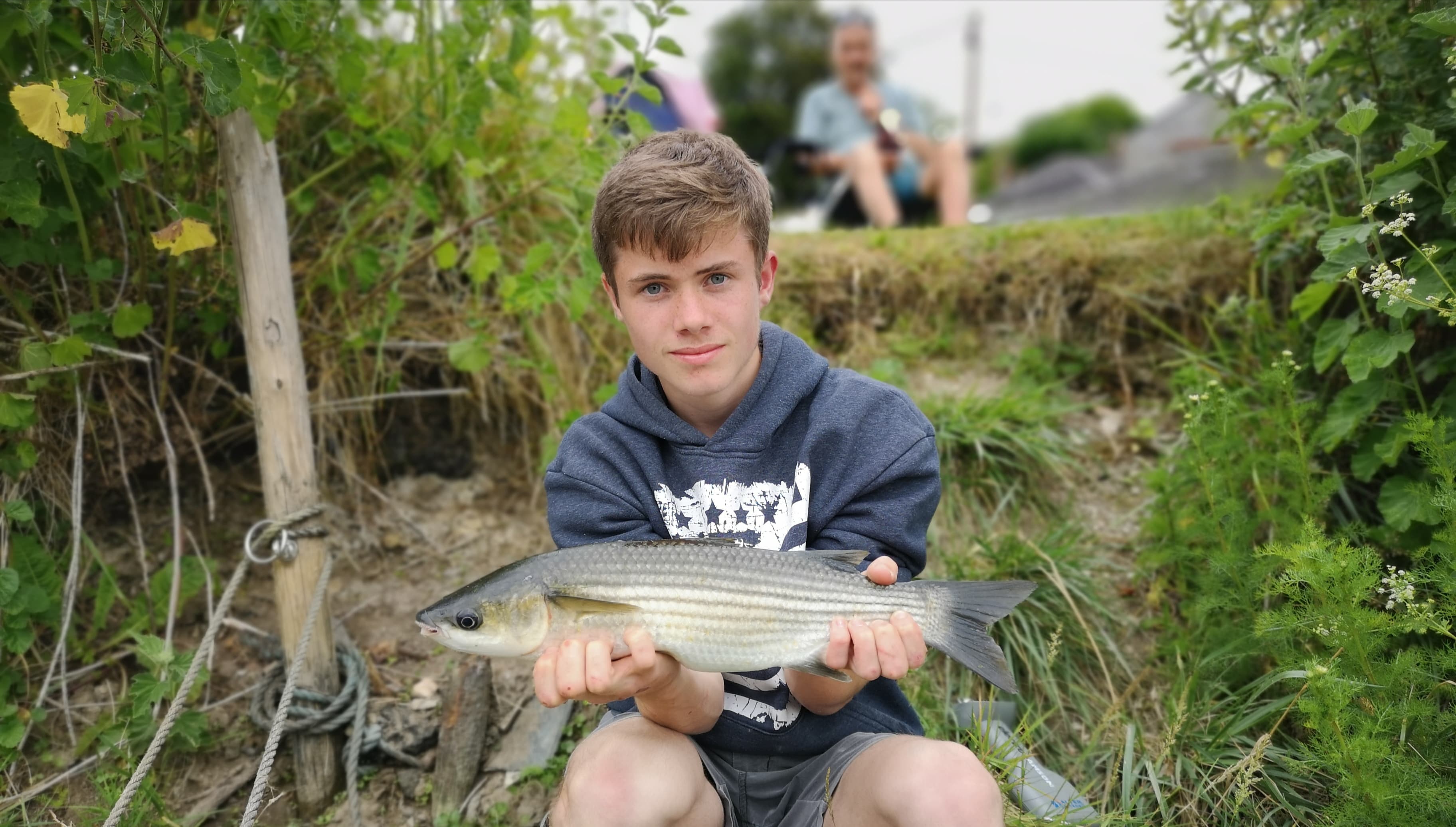
For the next couple of hour’s, the rod tips tremble frequently occasionally plunging over to result in a hooked fish or a cursed miss.
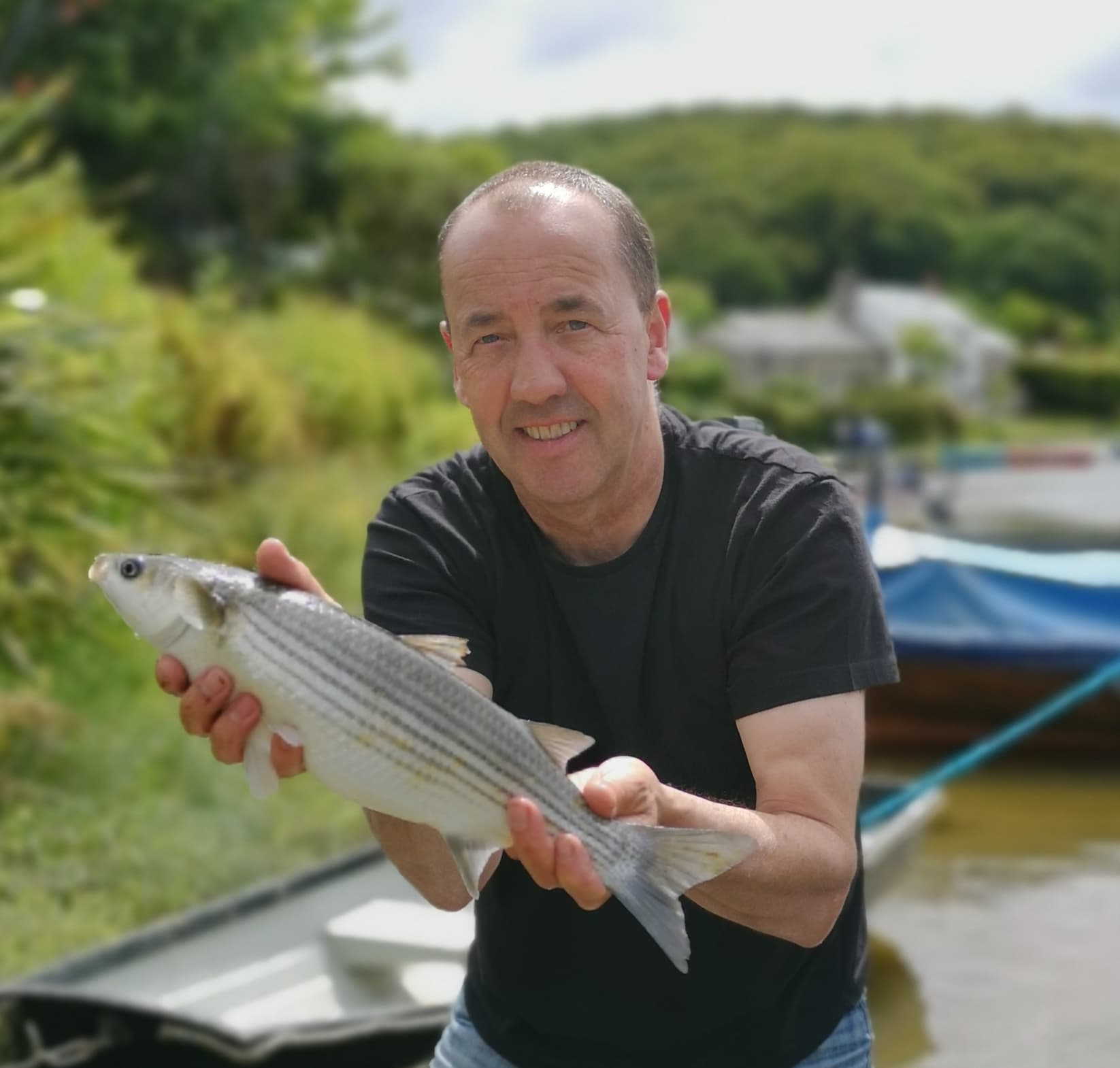
John Shapland and I settled on the grassy bank are able to fish in peace watching the summer scene before us as families gather on the village green, barbecues are lit, canoes and Kayaks are paddled in the calm waters. Several swans drift majestically on the tide within their midst a lone white goose.
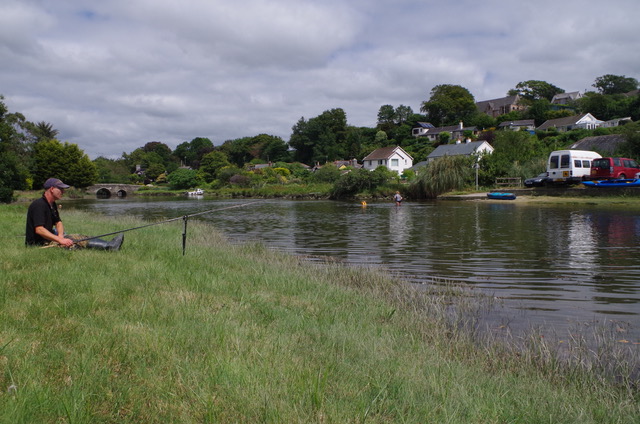
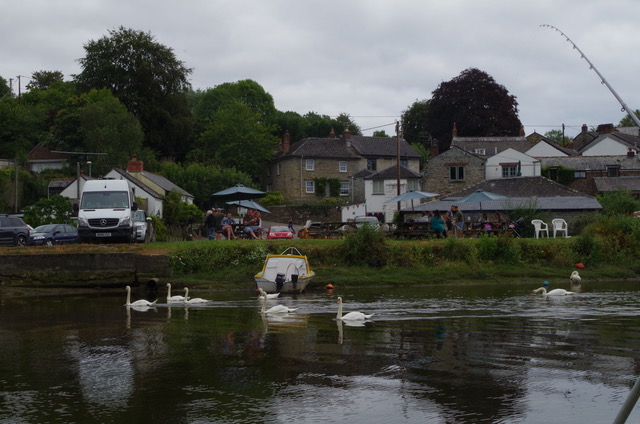
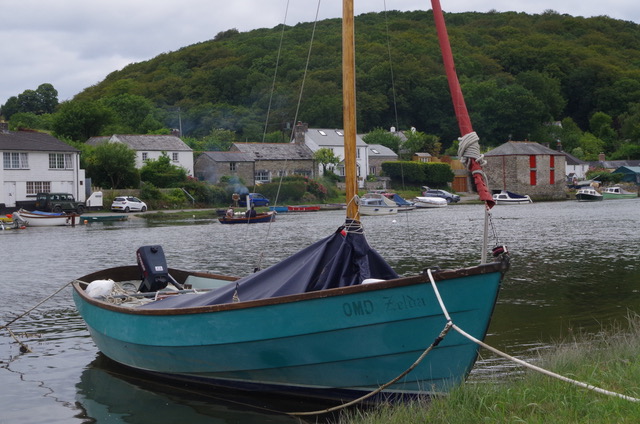
A small steam boat sounds it whistle to add a surreal feel to the afternoon. John Avery as always seems to attract a succession of curious onlookers who ask the same old questions. “ Caught any ?” , “what you fishing for? “ “good eating?”. John replies with his normal polite response. “We have caught a couple, grey mullet we put them back”. “Taste earthy don’t they” “Soft mouths” “Uncatchable!” . And the questions and statements flow in an irritating drivel.
As the tide ebbs away and the stepping stones once more begin to show its time to pack up and head to the charming town of Lostwithiel for Fish and Chips followed by a couple of ales in a local pub with fellow members of the National Mullet Club. The fifteen members fishing had caught over 25 mullet to 3lb 14oz.
The drive back to North Devon was full of future plans and stories of past glory’s.
